Pandama Retreat and Winery
How a couple’s dream turned into one of Guyana’s top destinations


Sunday, June 2, 2024
Artist and Proprietor of Pandama Retreat and Winery, Tracy Douglas (Samuel Maughn photo)
How a couple’s dream turned into one of Guyana’s top destinations


Sunday, June 2, 2024
Artist and Proprietor of Pandama Retreat and Winery, Tracy Douglas (Samuel Maughn photo)
ALTHOUGH 58 is not an outstanding number, Guyanese celebrated Guyana's 58th Independence anniversary at home and abroad last Sunday in fine style. I attended one of the celebrations in the diaspora. It was held at the St. John's Anglican Church at Mount Ranier in Maryland in the United States, and it was well attended.
The church and the parish hall were bedecked with Guyana flags and buntins with
the Guyana colours. Later, everyone with whom I spoke after the service, and during the reception which followed, had good things to say about Guyana, the land of their birth. Some of them spoke of their longing to visit Guyana

sometime soon. One even enquired whether there will be another "Visit Guyana Year" in the future.
Among the attendees at that celebration was Guyana's ambassador to the United States, Samuel A. Hinds. Ambassador Hinds most notably served as Guyana’s Prime Minister from 1992 to 2015,
weather of Guyana, especially during the winter months, and long for the Summer season. The Guyana Independence decorations, such as the Golden Arrowhead flags - miniature and large ones - and buntings with the Guyana national colours, were all around the inside of St. John's church and within the
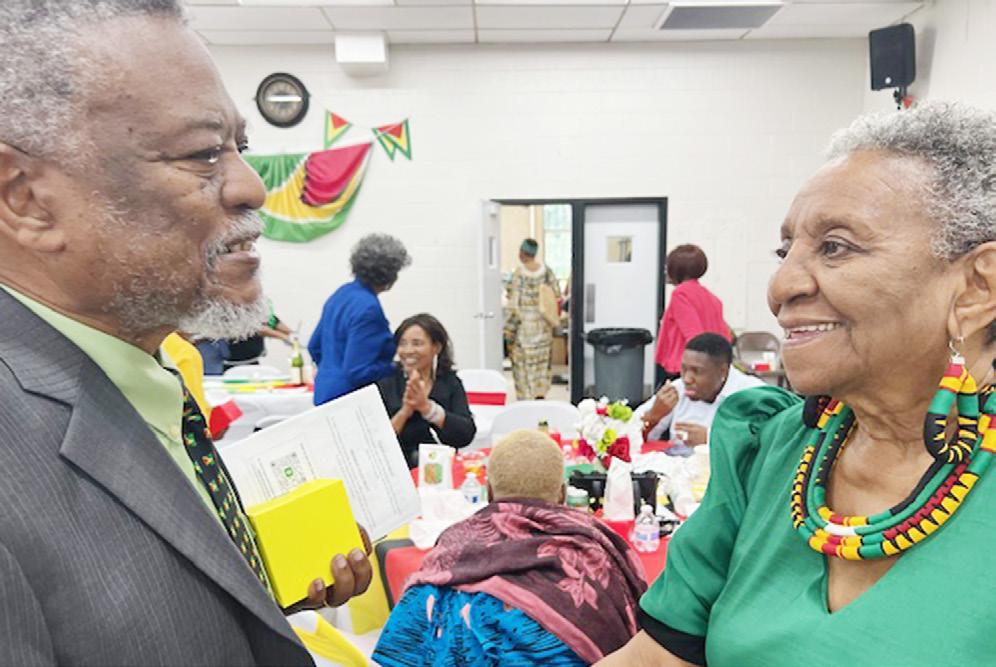
except for a brief stint in 1997 when he served as President of Guyana. Ambassador Hinds mixed freely with the attendees at that celebratory event.
As the celebrations went on, I interviewed a few of the Guyanese. "Well, I know they have a lot of problems in Guyana!" said one of them. "But which country don't have problems? Even here in America you have so many political and other problems! And look what's going on at the airports here of late, with so many near mishaps right on the ground!" As our conversation continued, she pointed out how Guyana is a country that is blessed with extremely favourable weather: "No cold winters in particular," she emphasised, and she shook as though she was temporarily out in the elements on a cold winter's night.
Indeed, there are some Guyanese who are residing in the northern climes, who seem to really miss the tropical
adjacent parish hall where the reception was held.
"It was like being back home in Guyana" was mentioned to me a few times by those with whom I spoke during and after the festivities. Some even spoke of the church activities they used to be engaged in back home in Guyana before they migrated. Some also conversed as though they were actually back in the Motherland. As I interacted with those in the hall, I realised that many of them had visited Guyana at least once during the past 20 years. While there is quite several overseas-based Guyanese who have never returned home for a visit, there is still an impressive number who have actually visited at least within twenty years of migrating. The fact is, there is an impressive number of them who do return on visits.
Sadly, quite a large number do so to attend the funeral of a relative or close friend.
Some years ago, the Ministry of Tourism mounted a "Visit Guyana Year" which I do not think attracted many visitors and so could not be classified as a "success". As such, one wonders if there wasn't enough experience garnered to make the organisers much more experienced and equipped to organise a really successful "Visit Guyana Year" in the future.
Those who were among the previous planners should be invited to share their experiences, where they feel mistakes were made, and how to avoid them as they inject better plans to make the next VISIT GUYANA YEAR as successful as possible. I closely followed the "YEAR of RETURN" organised by GHANA, and I found it successful because early and meticulous planning was done. Many Guyanese who are based in the diaspora tend to support those Guyanese events which have earned praise over the years for being well-planned and executed. Christmas and the Mashramani have always been extremely well done and attracted thousands of visitors. It is not too early to start planning for a "Visit Guyana Year"; let's say it will be in 2027. A small group of well-experienced individuals with the requisite skills should be brought together at least two years in advance to map out the programme of events and get the promotion going across the world. There is an attractive element to such an event. However, I will curb my enthusiasm and refrain from mentioning it here. It is unique but would increase the number of arrivals significantly. I can add this much: I am sure that Guyana’s current US Ambassador, Samuel Hinds, has the expertise to make such an event a success.

PANDAMA
Retreatand Winery is more than meets the eye and offers far more than just peace and quiet. Pandama is a legacy built on love. Beginning with the dream of a young couple, it has become one of Guyana's most visited and wellknown destinations. Today, Tracy Douglas is keeping the business going. She shares the story of the love behind Pandama that made it what it is today and how she has kept it thriving.
The Story
Tracy and Warren Douglas met over 18 years ago. Warren, a Guyanese, and Tracy, a US national, were a unique pair seemingly made for each other. Warren had no intention of returning to Guyana to stay after moving overseas, but after returning to Guyana in 2007, Tracy fell in love with the country. Beginning Pandama was not the couple's initial intention, but over time, Pandama simply blossomed.
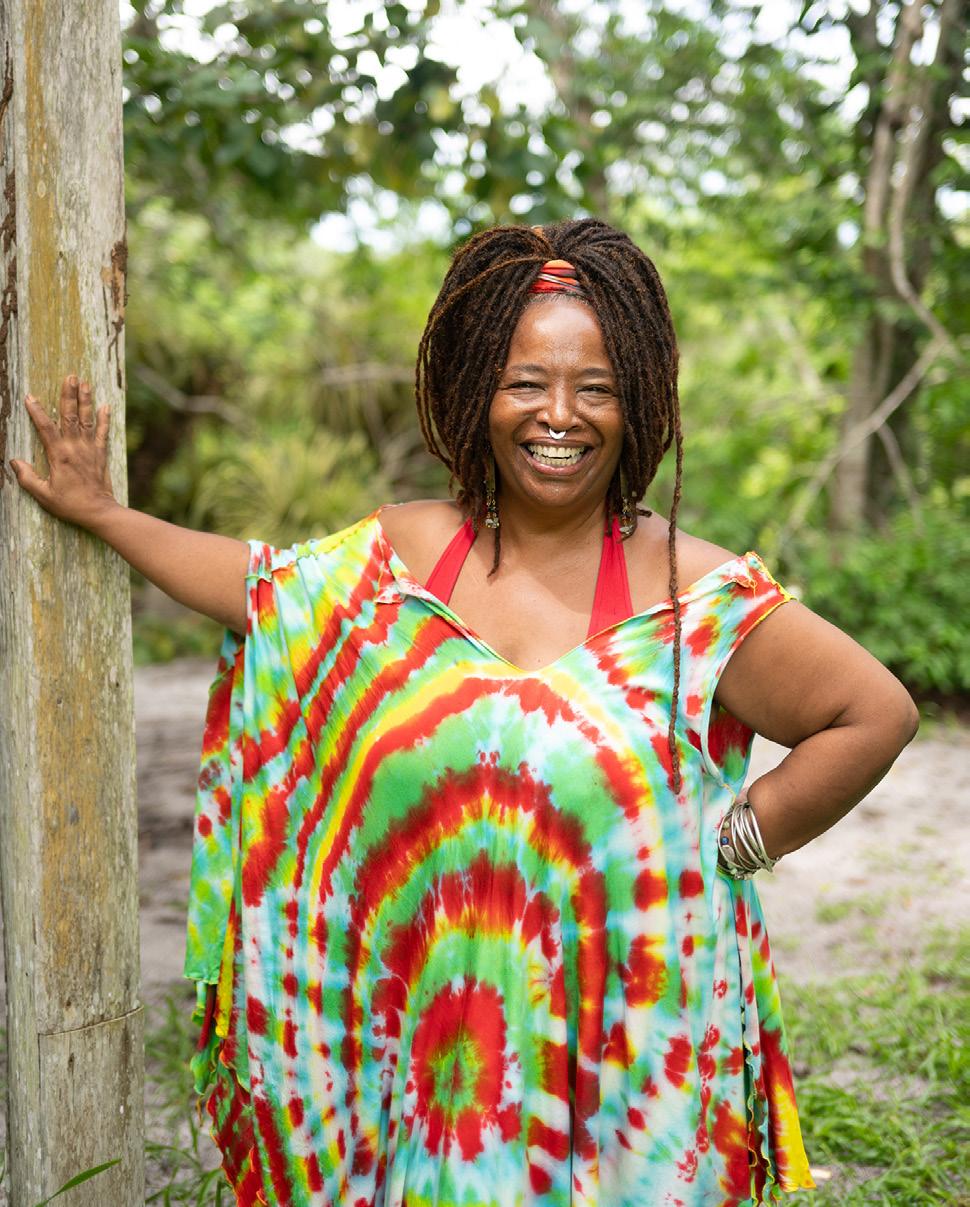
As Tracy explained, “Warren and I started Pandama, I guess, really, since we came to Guyana. My first time in Guyana was in 2007. Warren had no intentions of coming back home. He was a Guyanese who had left. And when I talked about the idea of coming, he's like, maybe 8 to 10 years. I was like, no, we got to go.” She further added that upon her first time in Guyana, “I fell in love with Guyana. I was on a mission to come. We went to the wharf. I remember you could buy a bucket of fish for 10 US dollars. And that was like, oh. Because if you want to live someplace, you
want to make sure you can afford it. And so that was like a check. We went to the market. And I was like, oh my God. All those fresh vegetables and fruits and my mind was just running, running, running. And then we were blessed to find this space.”
The well-known name Pandama has become synonymous with rest, relaxation, and of course, wine.
However, like so many other things in Pandama, the name came from nature. “One of the things very prominent on the land was the Pandama Palm. We didn't know what it was, but it was the Pandama palm. And it's just like this green and yellow plant, very different. The root system is very different. And he said whatever the name of this palm is, is what I would like us to name our business after. And he went and met quite a few people from the plant society… and discovered what the name of the plant was,” Tracy explained.
The couple behind Pandama Tracy and Warren Douglas were the original power couple. They shared the responsibilities of Pandama, with Warren as winemaker and Tracy managing the home and business aspects. Together, they made Pandama the brand it is today. However, the couple faced challenges from the opinions of others. As Tracy explained, “I remember somebody saying to Warren, it must be really hard to have a smart wife. And I'm like, I looked at him, and I was like, but doesn't everybody want a smart wife? Like, that would make sense to me, but I had to learn, I had
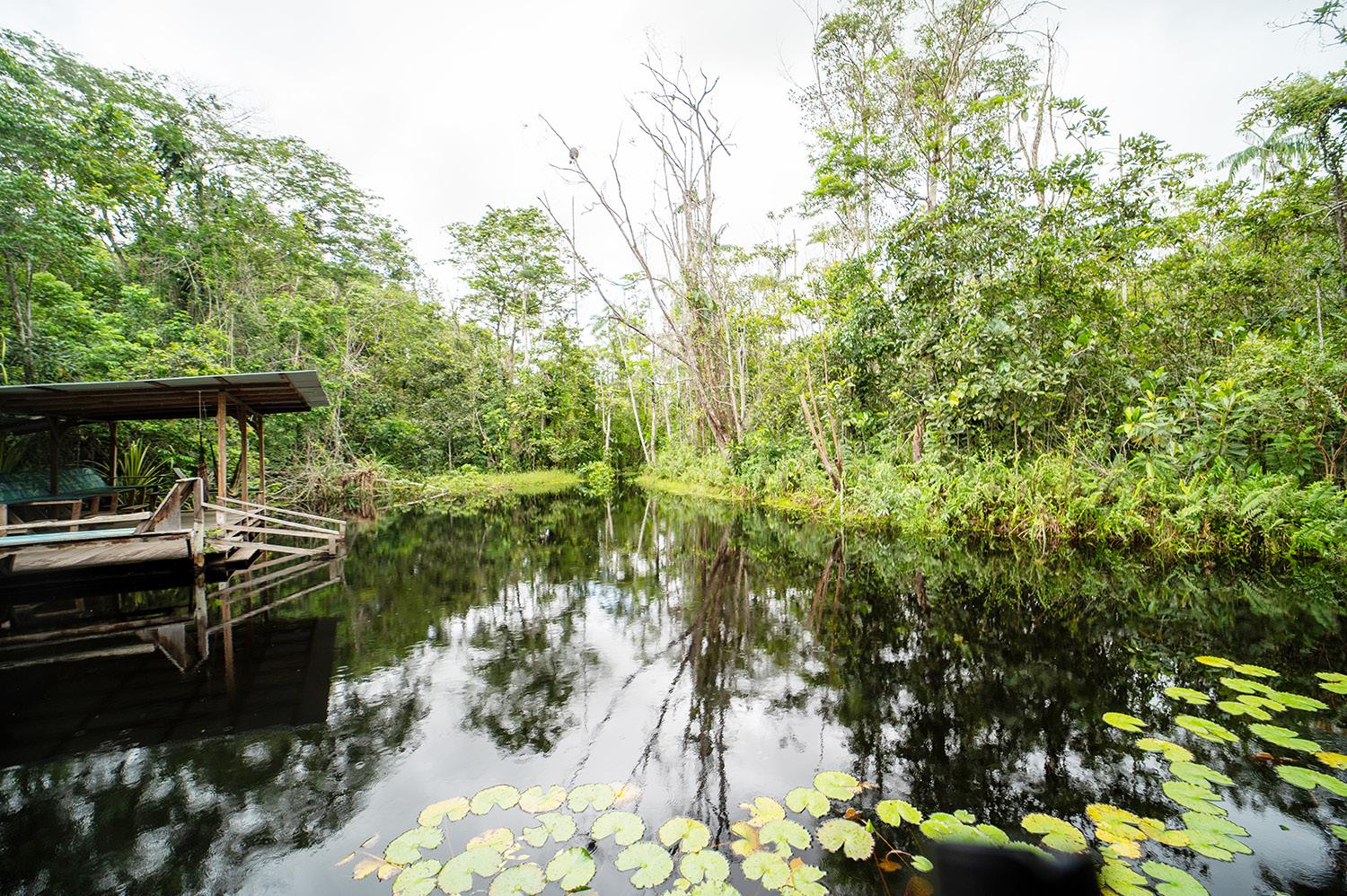
to learn, like, that balance of being okay with who I am, not being less smart, in terms of being in certain communities, and how to show up, and finding that flow.”
With the loss of Warren two years ago, Tracy has kept Pandama alive and well. Contrary to what most people thought, the loss of Warren was not the loss of Pandama. “They would say, well, Warren, you do all of this, and he would say, no, I do the wine, she does everything else. And they would look at him as if he was just being modest, like, of course he does everything, and she just does
says love and wine are what he owed his blissful life to. As she stated, “I know that the community was very surprised when he made his transition because nobody knew the story he was walking with. When Warren and I met, he was actually on the heart transplant list and he did not want to get the surgery. He when he looked and said his life expectancy would be like 10 to 12 years if he had the surgery and with complications and all of that. And he just said, I'm going to live however long I'm going to live. And so that's how we're
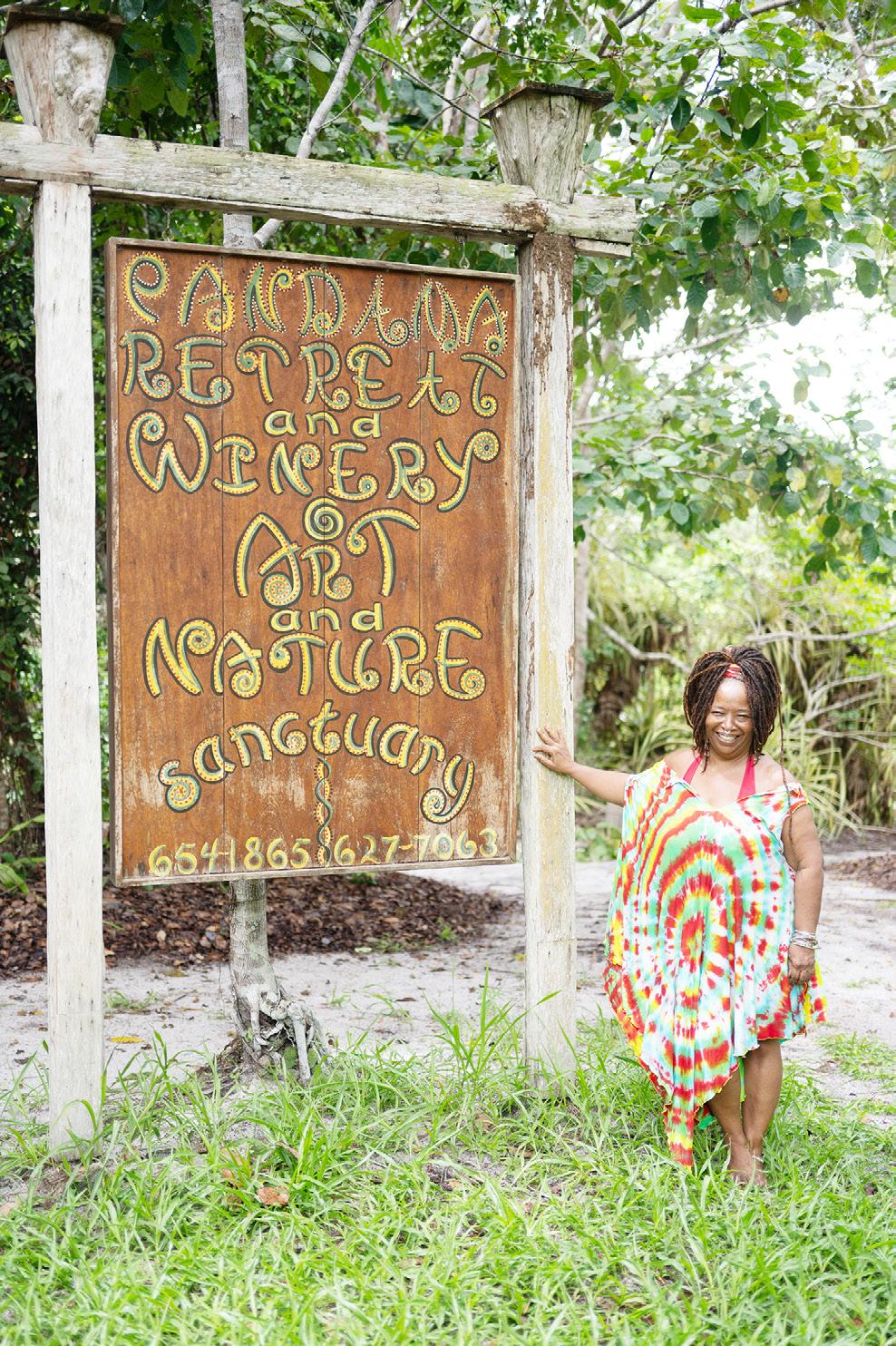
nothing. In his transitioning, the clear assumption was Pandama was done. It's like, okay, that's it, that's the chapter done.”
Not the end of a legacy Warren's death came as a surprise to many people. However, to Tracy and his family, Warren's story goes far beyond what most people know. Warren battled heart issues for many years.
Tracy knew about his challenges and was committed to standing beside him for as long as he had. Warren lived far beyond his life expectancy. Tracy
meeting. I think back, and I was like, ‘Tracy, what was in your head to get involved with somebody who's on the heart transplant list?’ It made no sense. But yet, it made all the sense in the world for us to go on that path together on that journey. And I said, ‘Well, if you need a new heart, you need love, no stress, and you need to change your diet.” Warren and Tracy lived a happy life together for more than 16 years. And with Tracy’s determination, Pandama will continue to thrive.
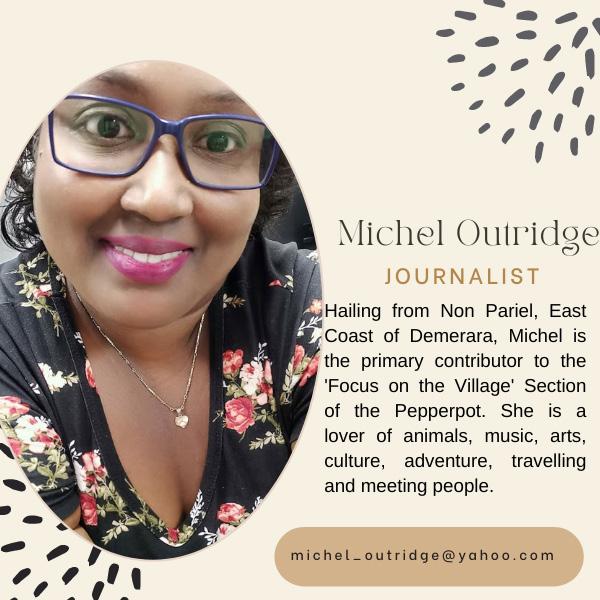
AS a child, Calvin Lawrie was a fidgety learner and in school, his attention span was sparse, making him different from most of his peers.
According to him, he did not get sufficient support from the teachers, and that’s why he became an occupational therapist, helping children with disabilities become independent and normally re-integrated into society.
He has been an Occupational Therapist at the Ptolemy Reid Rehabilitation Centre for the past six years, and he works with children in the pediatric section.
Lawrie works with children with disabilities who have behavioural issues, school children who have challenges intellectually and those with problems with writing and fine motor skills.
Realising he had issues learning in school and also being a very picky eater, he was able to relate to children who have similar challenges.
Lawrie told the Pepperpot Magazine that he works with children from birth to 16 years old. These children include those with autism behavioural spectrum disorder (ADHA) and cerebral palsy.
Growing up, his father was the headmaster at Harold B. Davis Special School which is located in the compound of Ptolemy Reid Rehabilitation Centre, so he was exposed to children with disabilities at an early age.
Recognising his chal-

lenges as a child, he knew the therapy field was right up his alley.
Lawrie added that he had been in the setting for a long time, and it was easy for him to gravitate towards the profession as his way of contributing to society.
He reported that he became qualified after spending four years at the University of Guyana (UG), where he obtained a bachelor's degree in occupational therapy with emphasis on medical rehabilitation.
“It is a rewarding profession for me because I enjoy what I do for work, and it brings me satisfaction seeing my patients improve to become independent to be re-integrated back into society to function as a normal person and to blend in the school system,” he said.
Lawrie related that at Ptolemy Reid Rehabili -
tation Centre, they work collectively as a team to give the required therapy to children in a holistic form of therapy which involves both mental and physical stimulation.
The 28-year-old told the Pepperpot Magazine that today, he is has been able to overcome his pet peeves as a child, and he likes to travel, visit new places and socialise when the need arises.
Lawrie resides in Cummings Lodge, East Coast Demerara. He has four siblings and comes from a family of teachers.
He stated that therapy for children is essential and teaches them life skills to adapt. He has always liked children since they are our future, and he enjoys equipping them with equal opportunities.
As an occupational therapist, he deals with children who are differently abled on a very per-
sonal level and deals with their respective issues and beyond to break mental barriers.
Lawrie added that Ptolemy Reid Rehabilitation Centre is a play base for children where therapy isn’t boring and where they have goals to accomplish for their ultimate re-integration into society.
He reported that each child has different needs, be they mental or physical, and he would assess the child based on therapy since some may have
problems with textures, such as feeling grass or sand etc.
Lawrie pointed out that as an occupational therapist, his job isn’t a challenge because he likes what it entails.
He was able to become competent as a result of the experience gained and knowledge imparted to him while in training.
Lawrie stated that occupational therapy is an allied profession that involves the therapeutic use of everyday activities to
treat the physical, mental, developmental and emotional ailments that impact a patient’s ability to perform daily tasks.
He added that occupational therapists help children with disabilities live independently via evaluation to treat them according to their specific needs.
Lawrie related that they assist children in meeting goals to develop, recover, improve, and maintain skills needed for daily living.
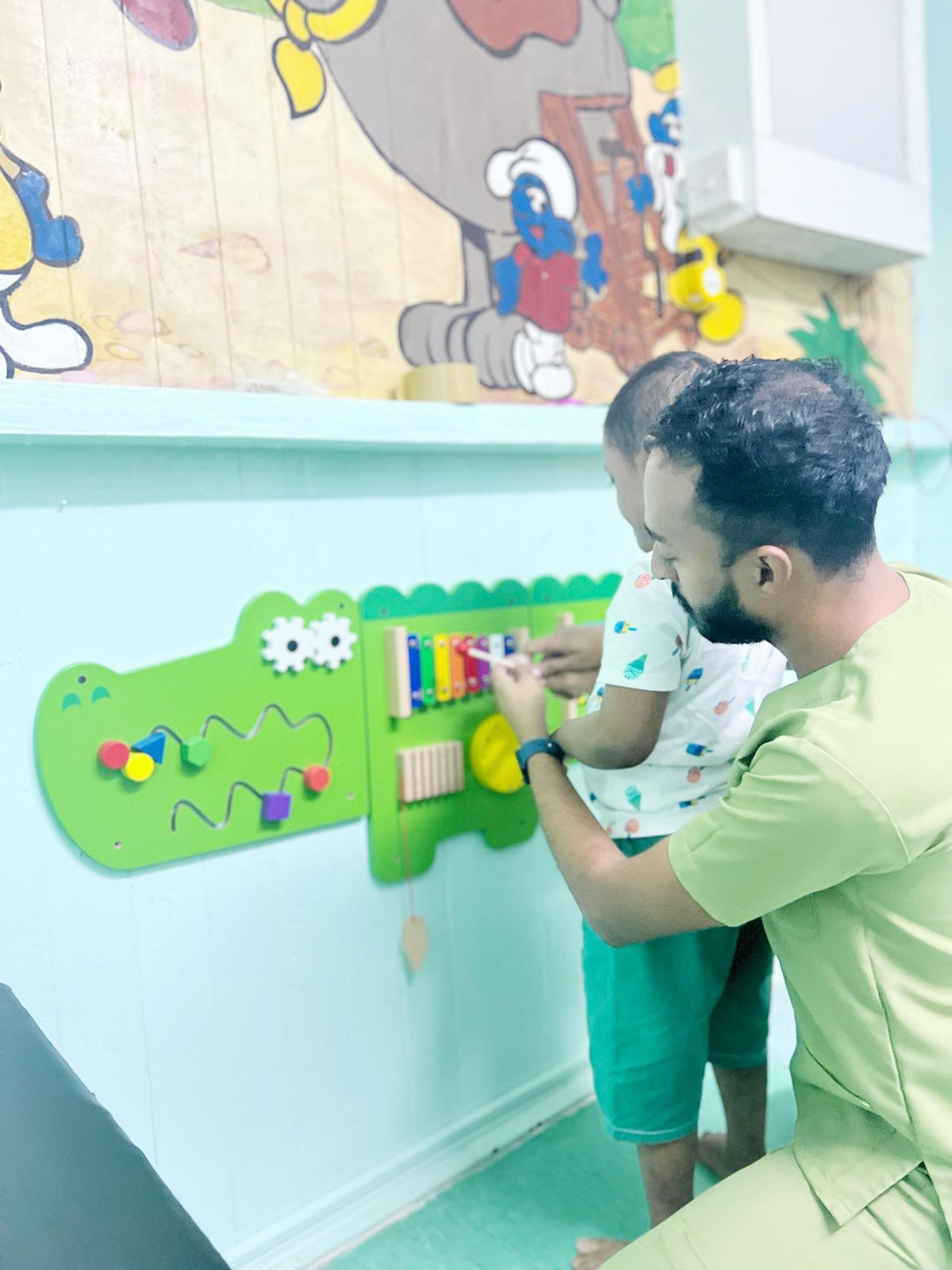

FROM PAGE VIII
She hopes that the community spirit may return with the newer generation. Shenessa thinks Technology may be to blame for the loss of frequent village discussions. As she stated, “Technology has changed a lot of things. People seem to be more withdrawn. But if there is anything that could help, people still come out.” Shenessa encourages her children to be in touch with their community as much as possible. As she shared, “It's now that I have my kids and a few others kids in the area. They come out and play, and so on. But living here is calm, and I can say that you can save. There was always a hustle. And you could always plant.”
Change and Development
Villages grow like people do, with a lot of time. When she moved to Block 22 several years ago, Shenessa said that to many people, the community was not even a village at all. A deforested area, with few people and no roads. As she stated, “When I moved to Block 22, there was a little change of environment, yes, but not too much of a change. But it was good, similar to where I was from.”
Today, Block 22 looks a lot different; more than a hundred happy people, and new roads. Shenessa welcomes the rise in population.
As she stated, “The community has changed a lot over the years in terms of development. When I came here, there was nobody around, it was just me. I used to ask my brother to come and stay with me.”
Another rise the community has seen is in entrepreneurship. Shenessa is a business owner. Established more than seven years ago, Shenessa’s shop has become a pillar of the community. She is not the only visionary the community has to offer, however. Dozens of people have taken to new business ventures of all kinds. Villagers hope that this movement, coupled with traditional jobs like mining and agriculture, will boost the community economically. Shenessa says, for the most part, she is without complaints about her home, saying that, “It has changed a lot. We have more businesses now. The only problem is we want some street lights.”
Business is doing relatively well, says Shenessa. As we enter the rainy season, business is slow, but it is still good enough to make ends meet. As Shenessa shares, “Business right now, with the rain, is kind of slow. But it is still reasonable to make ends meet. I have had this shop for about seven years.” New businesses seem to be pop-
ping up around every corner, and people of the community continue to support them.
As the mother of four children, three girls are still going to school, Shenessa has worked out a way of managing business and family. As she shared, “My children go to Watooka Day school. I have three children going to school. Watooka Day is across the river and past the hospital. It is a bit of a way. But we have our own transportation.”
Not many people have strong opinions on where they live unless they love their community. Shenessa says she enjoys life in Block 22, stating, “I enjoy living here. With the road, we have a little more development, but we would like to see more. But the road is a thumbs up. Before we had issues getting in and out. But living every day, it is getting better.”
On the matter of the lake, Shenessa says that community people do not visit the lake as often as one would think. As she shared, “Actually, people in the community do not really go to the lake now, but people come in to see the lake all the time. For me, personally, I have not been to the lake in over a year; and I live so close. There are people who live really close to the lake too.”

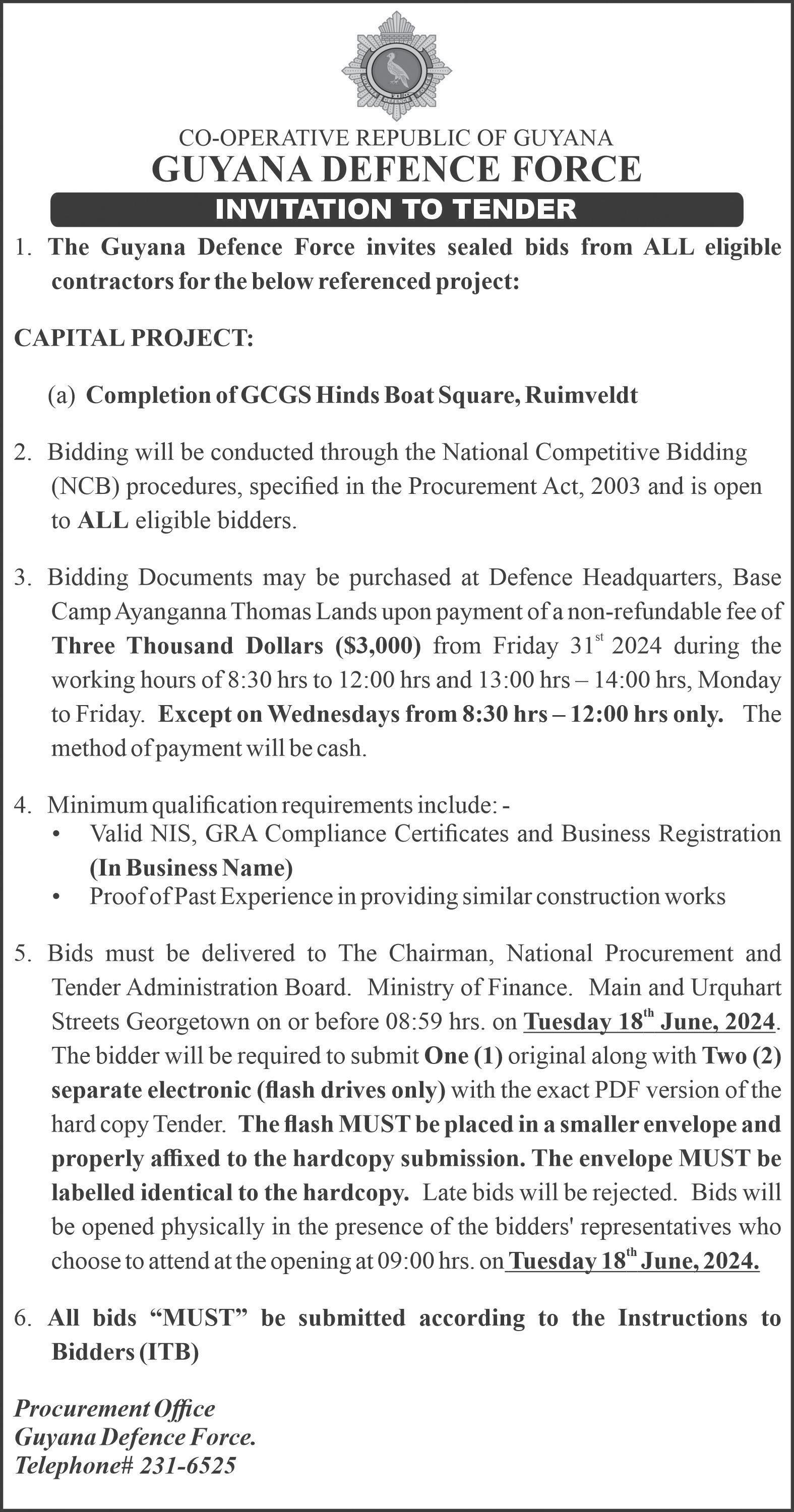
WHEN Sondy Ceran stepped off the plane in 2015, he knew very little about Guyana. He was familiar with the trees and tropical sun and was drawn to the nation's people. Sondy came to Guyana from his homeland of Haiti with just a dream and a passion for
quite challenging. Very. Because growing up in a country where you have instability in terms of security - there's no security.”
Although he struggled initially with music in Haiti, Sondy eventually became known as a respected music producer and musician in his own right. As he shared, “My career started in Haiti, actually. I started working as
and the help of some supportive Guyanese musicians, Sondy soon found his footing in the Caribbean's gospel scene. “I fell in love with the country. I fell in love with how people embrace you here. And I think this is one of the things that I believe foreigners need to tell Guyanese more, is that Guyanese have a special way of giving it all to you.” He went on further, “So then

music. Although his career began in Haiti, the support and love he received in Guyana were unlike anything Sondy thought he would experience. With a growing support base, Sondy hopes to inspire people with his unique gospel music.
Sondy was born and raised in his faith and was ordained as a pastor at 17. He described his childhood as difficult and unpredictable. One week was not guaranteed to be like the next, and Sondy turned to music as the only stable thing in his life. As he recounted, “I grew up in Haiti. I grew up in Haiti, and then I came to Guyana when I was 22. Growing up in Haiti was
a producer in a studio. That was my way of making some money. But I never recorded myself because it was a job. So, I couldn't afford to just go into the studio and, say, pay for the studio time and then record. But I needed that money to help me out. But I started recording other people. And then I was a youth director, choir director, and stuff like that, which gave me much more knowledge in music. But to get to recording for myself was when I was 19.”
When he ventured to Guyana almost a decade ago, Sondy had no real idea of how he would make his music career work. With hard work, time,
And one other thing is that it doesn't matter who you are, what you have done before in life. It doesn't matter where you are in your work with God. What matters is, do you take time to realise that He loves you beyond measure. So I choose to sing love. I choose to sing His grace and mercy.”
Sondy is as unique in his approach to his faith as he is to his music. He aims to break the mould of the conventional gospel. As he explained, “Everybody is trying to make your relationship with God very scary. They say, ‘Oh, if you don't come to Jesus, you're going to hell.’ I mean, that's not the message. The message is the good news about God. So, instead of preaching hell all the time, let's start preaching love and mercy. It's goodness. Because that's what Jesus did, so these
are the things that inspire my music. It's the message of the cross, the message of salvation, the message of love and purity to God. These are the things. That's where my inspiration comes from.”
Sondy, like most musicians, hopes his music will have a profound impact on his audience. But unlike your everyday singer, Sondy wants his listeners to have a truly unique experience. As he shared, “Anytime someone listens to my music, I want them to have an encounter with God. That's all I need. That's why I'm not doing this for the fame. I'm not trying to be famous as if my music is just a vibe. I'm not trying to create a vibe. If you're looking at social media nowadays, you'll see everything is a vibe. It's all about the rhythm, not the message behind it. So
even if you're looking at Afro beats, everything that comes out becomes a hit just because of the rhythm.”
As someone who has stuck with music for as long as Sondy has, and gospel music to be exact, Sondy urges other musicians to be true to themselves. As he stated, “Gospel artistes are trying to gravitate towards dancehall, reggae, and Afrobeat just to have that niche to get to that market. But it's not about the message. It's all about the rhythm. I'm not trying to do that. I'm trying to speak a message that can last forever. Whenever someone hears any one of my songs, whenever someone listens to me when I'm preaching or singing, they must say they had an encounter with God.”
a couple of years after, about four years after, I travelled to Guyana. And since I came to Guyana, I'm doing the same thing: keep recording. I was so blessed to be embraced by so many Guyanese gospel artists. You're talking about Kester D, Saiku, Sean English. These guys put me under their reign and fly with me.”
Sondy has released a few songs recently and has done numerous covers of both gospel and rhythm and blues. But whether it's R&B or Gospel, sung in English or French patois, Sondy says his inspiration stays the same. “God is my inspiration. I sing to remind people about God.

THE mining town of Linden is amongst the most diverse parts of Guyana, with its countless breathtaking lakes and majestic hills. It also seems as though it is home to a special kind of people. Block 22 is over the river in Linden, home to a few hundred people. It is one of the most captivating communities in Guyana situated atop a hill, which is not unique for most Lindeners. What is interesting, however, is that Block 22 over-
looks a lake. The lake is among the biggest in the region and has become a popular tourist spot. The community is closeknit and old. Members of the community on the hill say that living in Block 22 and Linden is a paradise despite the challenges.
Nikola Lacon has called Block 22 Lake Road home for several years. Born and raised in Plaisance, Nikola’s family came to Linden like so many others. Linden is historically a mining community, and with mining
came job opportunities. Hundreds of people ventured to the community in search of work. With fathers and mothers seeking a better life for their children, entire families were sometimes uprooted and taken to Linden, a place of new opportunities. “My father came to work in the bauxite company at that time, it was the early seventies. My family remained here, my mother, family, and seven siblings,” Nikola stated. Nikola says she will never forget the shift from the East Coast to the
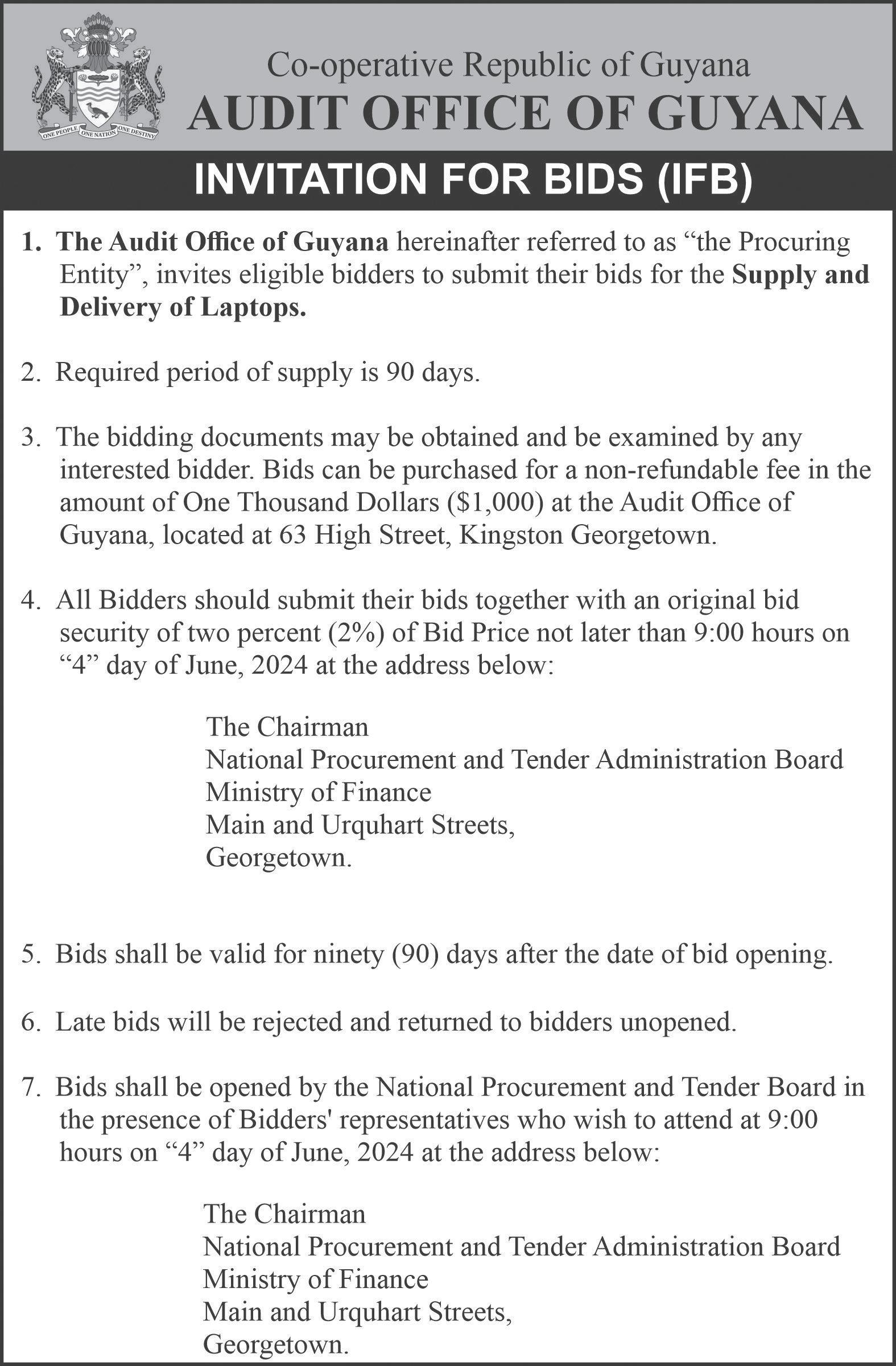
peaceful beauty of Linden. The hustle and bustle of the East Coast to the sudden serenity of life by the lake was a drastic but pleasing change. As Nikola stated, “In Plaisance, it was not bad. We had blackouts twelve hours a day and we had water maybe four hours in the day, depending. I remember going to the standpipes and washing in the aqueduct.” Although both communities offered a rural atmosphere, Linden and Lake Road offered a different way of life. “It was an extended family. We lived with cousins and so on. And then we moved to Linden. And Linden was paradise.”
Linden is a densely populated area, with several thousand people calling the township home. Linden and its outskirts have historically been instrumental in many areas of Guyana's development. Celebrations turned traditions, such as Mashramani, are said to have been born in Linden. It began as a little village of close-knit supportive people who worked around each other to develop their home. And as the town and surrounding communities continue to see change, many people want to see the return of the community spirit.
Nikola came to Lin -
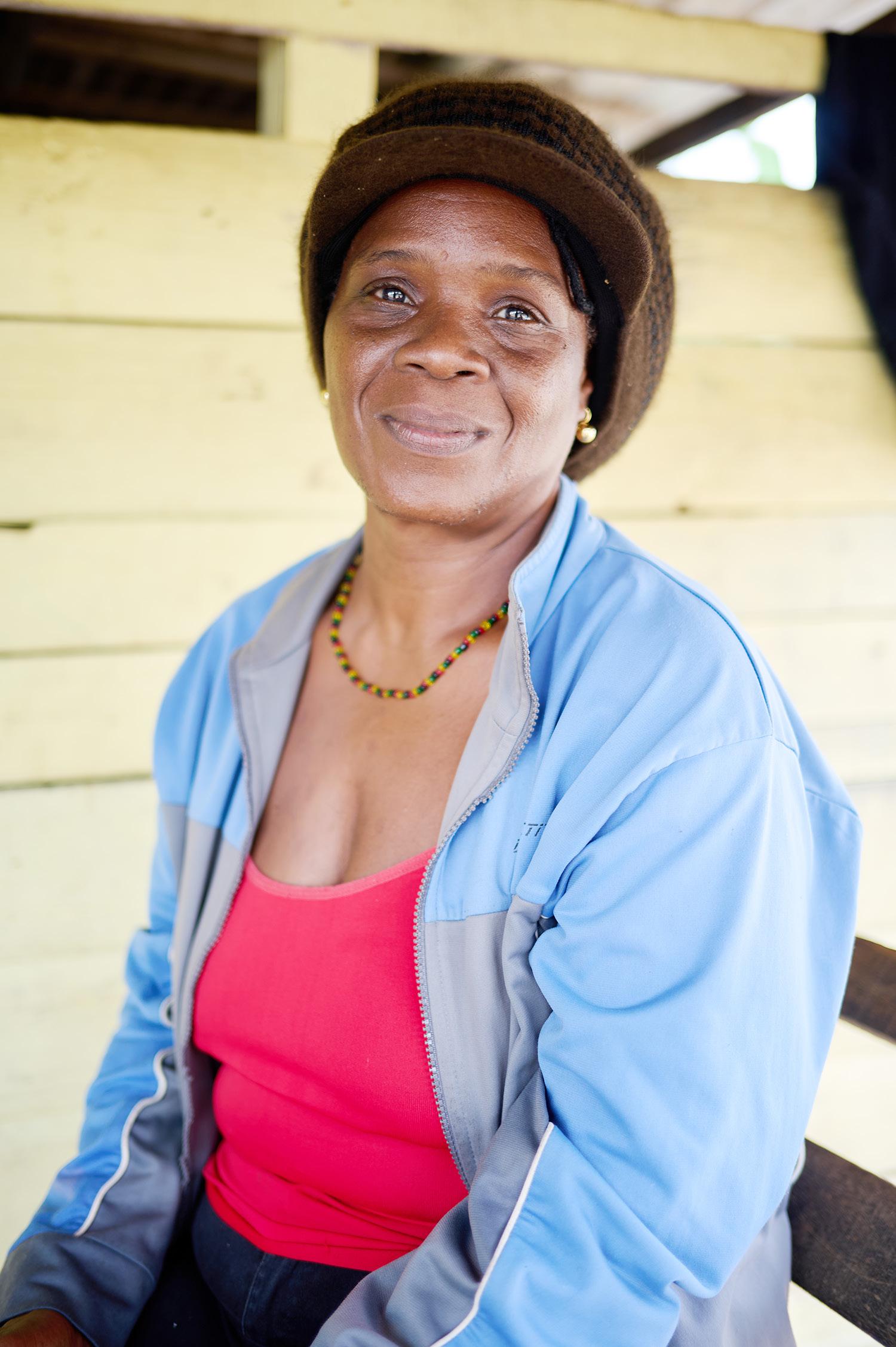
den when she was still a child. She remembers the welcoming, warm aura of the community, a place where everyone knew and supported each other. This seems to be slowly changing, according to Nikola. She recounts the days when members of the village, young and old, would make an effort to come together each afternoon to share the occurrences of their day, whether exciting
or mundane. Nikola says that community gatherings and the deeply cherished community spirit have died.
As Nikola stated, “The community spirit is not there anymore. The last time I saw community spirit was maybe back in 2012, real community spirit.” Compassion and neighbourly love are vital in building a communi -
TURN TO PAGE XII

WHAT does it take to make a community? Does it need massive industrial intervention or a larger-than-life workforce and millions of dollars? For the people who built Block 22, building a community takes plenty of willpower and cooperation.
Linden, life in Berbice was quite similar to that of Linden, with agriculture and community spirit as their building blocks. As Kirk stated, “Growing up in Berbice was real fun. We used to be with them while they cut rice. We would run through cast nets and catch fish. It was real fun, we had a nice
culture. He found work with local large-scale farmers and quickly became enamoured with the beauty of agriculture. Agriculture is still a part of Kirk's day-to-day life. He says he simply enjoys watching a seed blossom into something more. As he stated, “I came back when I was thirteen and I started
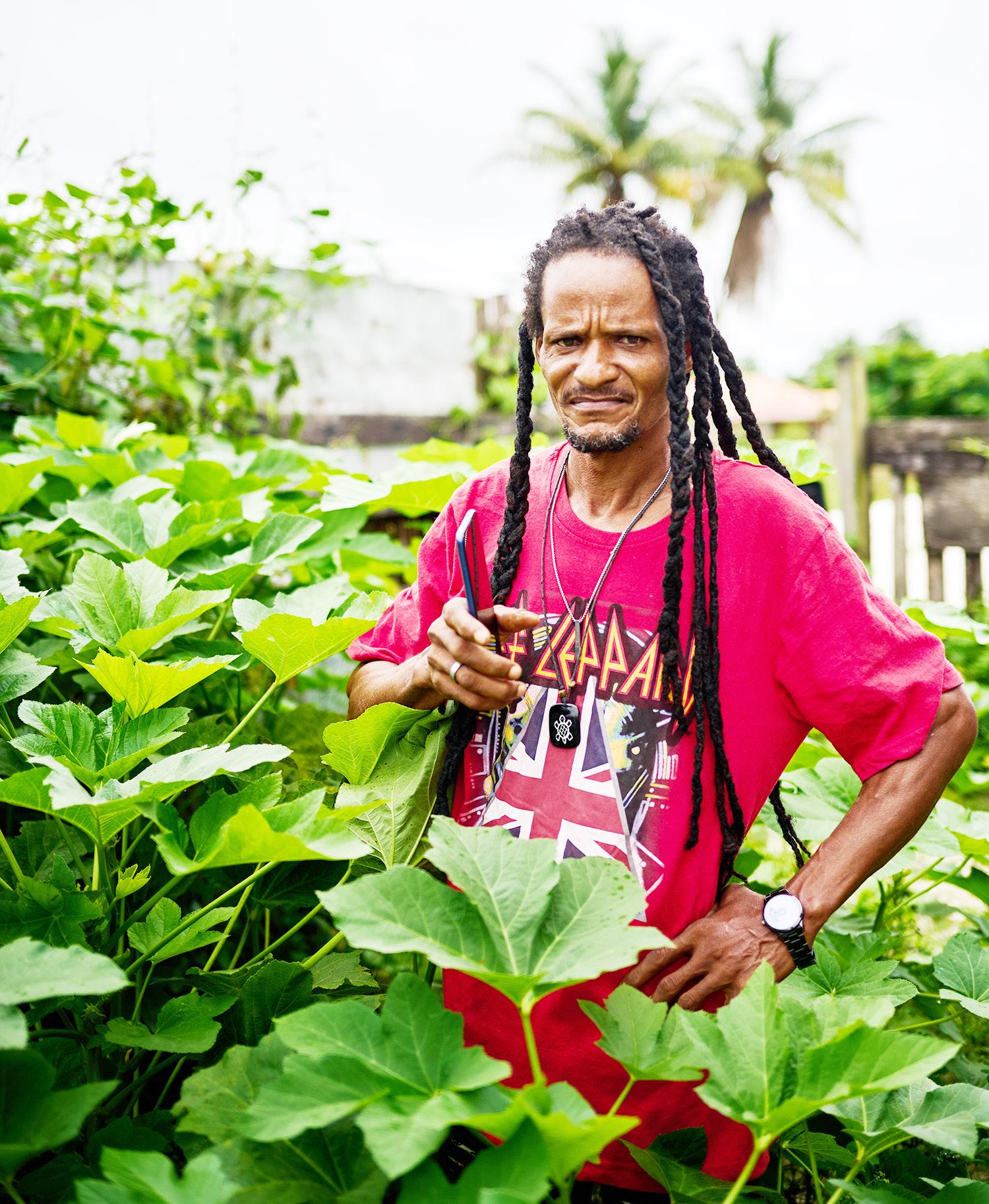
A small community on the outskirts of Linden, Block 22 is a village that came to be due to the hard work of a small group of passionate people working together with a similar vision in mind.
Kirk Duke is one of those Guyanese who has travelled the length and breadth of Guyana. From being raised in Berbice to returning to
time exploring. At first, I went with my mom, and I liked the place. I asked her if I could stay.”
Kirk's family returned to Linden when he was still young and enthusiastic, and he quickly fell in love with Linden. His family settled on Blueberry Hill, a popular housing scheme in the region. Kirk went into the only business he knew, agri-
people venture into the community, with new families seeking new opportunities and setting up homes. Kirk and several of the community’s young people saw this as an impending issue and knew that something would have to be done about the overpopulation. But they were not sure how the issue would be fixed or even if they could.
As Kirk explained to the
Pepperpot Magazine, “People started walking around and exploring. We used to come here as small boys. There were no roads, it was sand tracks. We used to come and swim in the lake.” At that time, the Blue Lake area was not much more than an open space, a captivating natural wonder that the neighbourhood boys frequented. It was something from a movie, a
natural beauty that people ventured to see.
“It was basically the youths that started the village. It was during a rough time in Linden when people could not afford to pay rent. Most of the people here were single women with children,” he explained. The community quickly grew, with more families seeking new oppor-
TURN TO PAGE XIII
working in agriculture. I still do agriculture today. For me, it is a miracle to see you put a seed in the ground, and it comes to life.”
Surrounded by nature, love, and good people, Kirk described life on Blueberry Hill as good. That is until the community began to face a new issue: overpopulation. Blueberry Hill and some surrounding places saw new

LOCATED in Wismar, Linden, Block 22 is a little-known village that has become a well-known tourist hotspot. Not many people pay attention to the housing community of an estimated fifteen hundred, but the well-known lake draws the attention of many. However, the community is more than what meets the eye. A steadily growing community, Block 22 is full of history, entrepreneurship, and love.
Community Values
Shenessa Rocliffe is Linden born and bred. Growing up in Linden, she was fortunate enough to experience
that “Linden togetherness” that so many talk about. She remembers the days when village gatherings were an everyday affair; these days, not so much. As she stated, “Growing up in Linden was usually fun on my behalf, because I grew up in two places. I grew up in Half-mile as well as Silvertown. And it was a community where in the afternoon times, everybody would come out and have a jolly time. But as time went by, all the games we used to play stopped. People do not have the time for it anymore.”
TURN TO PAGE IX
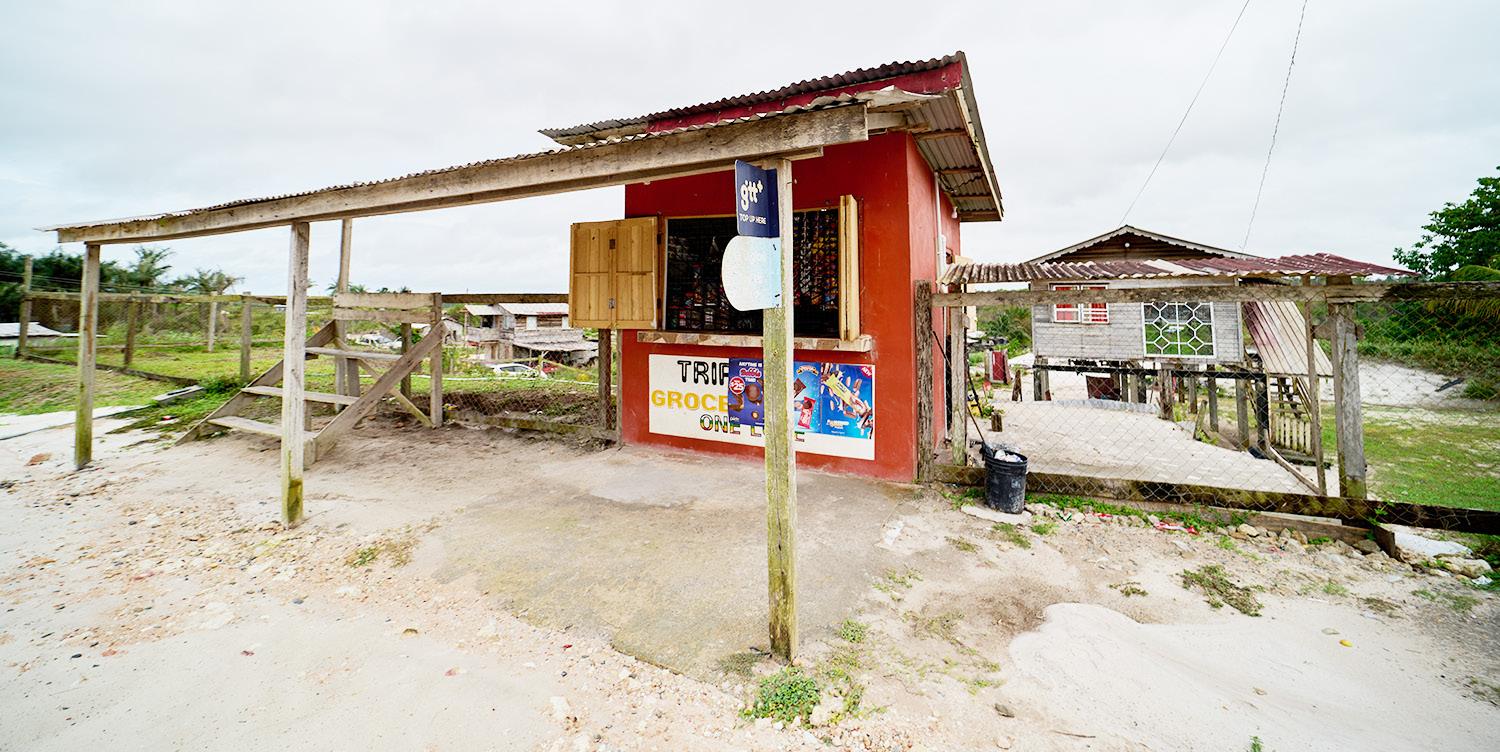

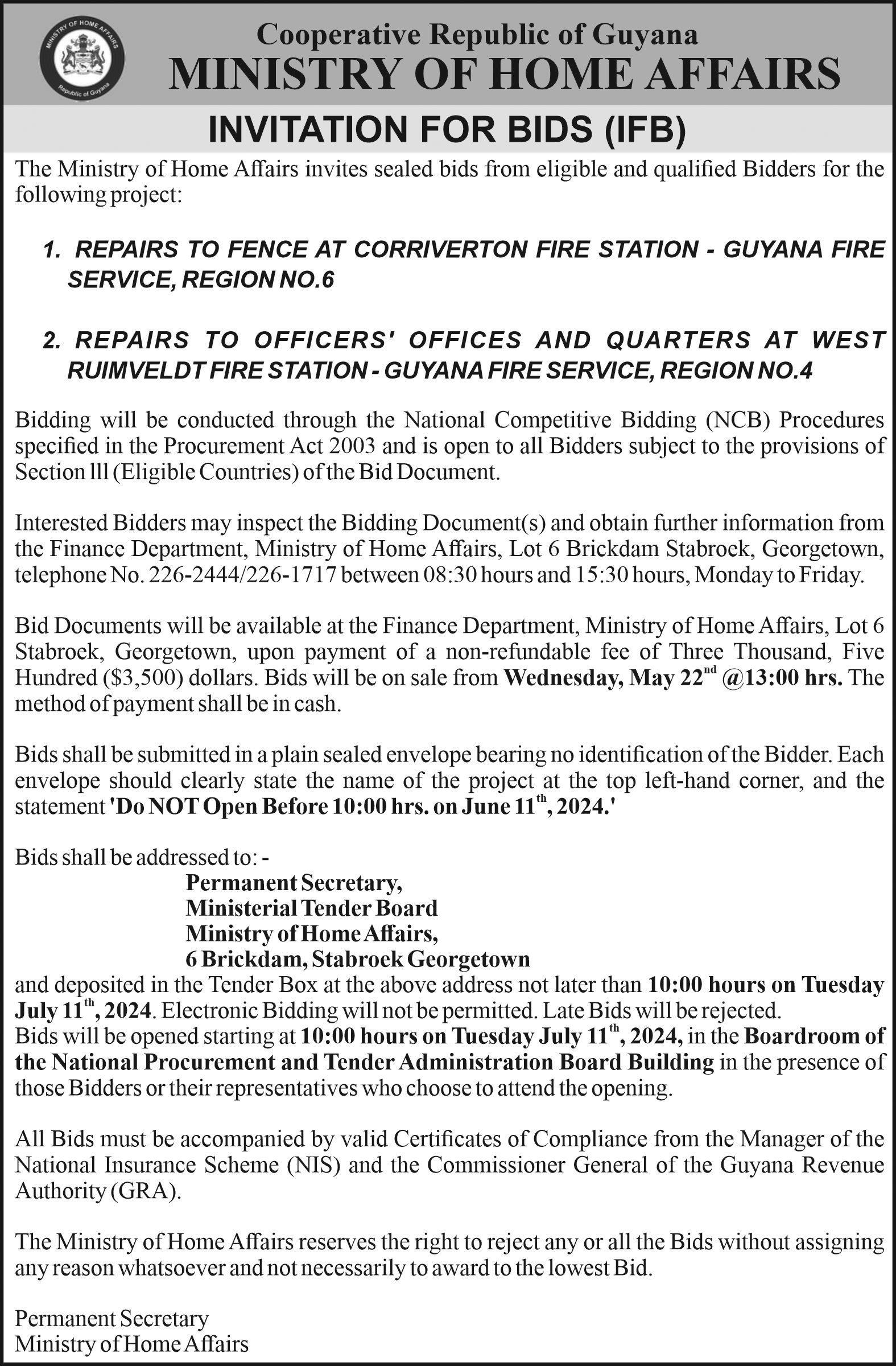

THE warmth of the white sand, surrounded by wild fruit trees that overlook a bluewater lake: Block 22, as the community is named, is truly beautiful. Although not a big community, housing less than a hundred or so people, the community has become quite famous. But it is popular for more than its lakes and trees. Its vast development also makes the community unique.
Block 22 is a community of people seeking to build a new life. Persons from far and wide ventured to the community seeking work, opportunity or simply a change of scenery. Lacell Gordon has seen the community blossom from a few little homes on the hill to a fully developed community, with both electricity and water. His journey to the community was not easy, however. Coming from a place that many considered a ‘ghetto’ to Block 22 was
a big change that took a lot of hard work. Where we grow up definitely has an impact on us however it does not have to define us. Lacell Gordon has lived in Block 22 for the last decade. He has seen the community change and develop throughout the years. When he first ventured into the community, it was not much more than an ats open space of trees. Lacell saw what the community could be and decided to stay. Born and raised in
Linden, Lacell says his home village was very different from his village today.
Although not perfect, Block 22 has a warm, welcoming neighbourly vibe to it. Lacell says his home was nothing like Block 22. As he stated, “I grew up in a place called Victory Valley. It was somewhere that people would call a ghetto. It was a poor community. We had alleys and them things. Investors would not come around to do anything in the community
because it was a ghetto, and we all know what a ghetto was.”
Today, Lacell works in construction. He worked various jobs throughout his lifetime to create better opportunities for himself and his family. Coming from a community like his, work was rare. And with the added pressure of coming from a place that many considered unsavoury, hard work was the only option for Lacell. As he stated, “There was no real work in the community I
grew up in. When people saw that you were from the valley, they would think it was a bad place and maybe we had a lot of bad people. But the fact is that we are all human beings. It is just where we live.”
Linden is truly the mining town. Most of the region's men have worked in some type of mining at one point or another in their life. Surrounded by industries, the people of communities like Block 22 are hard workers. People
TURN TO PAGE XI
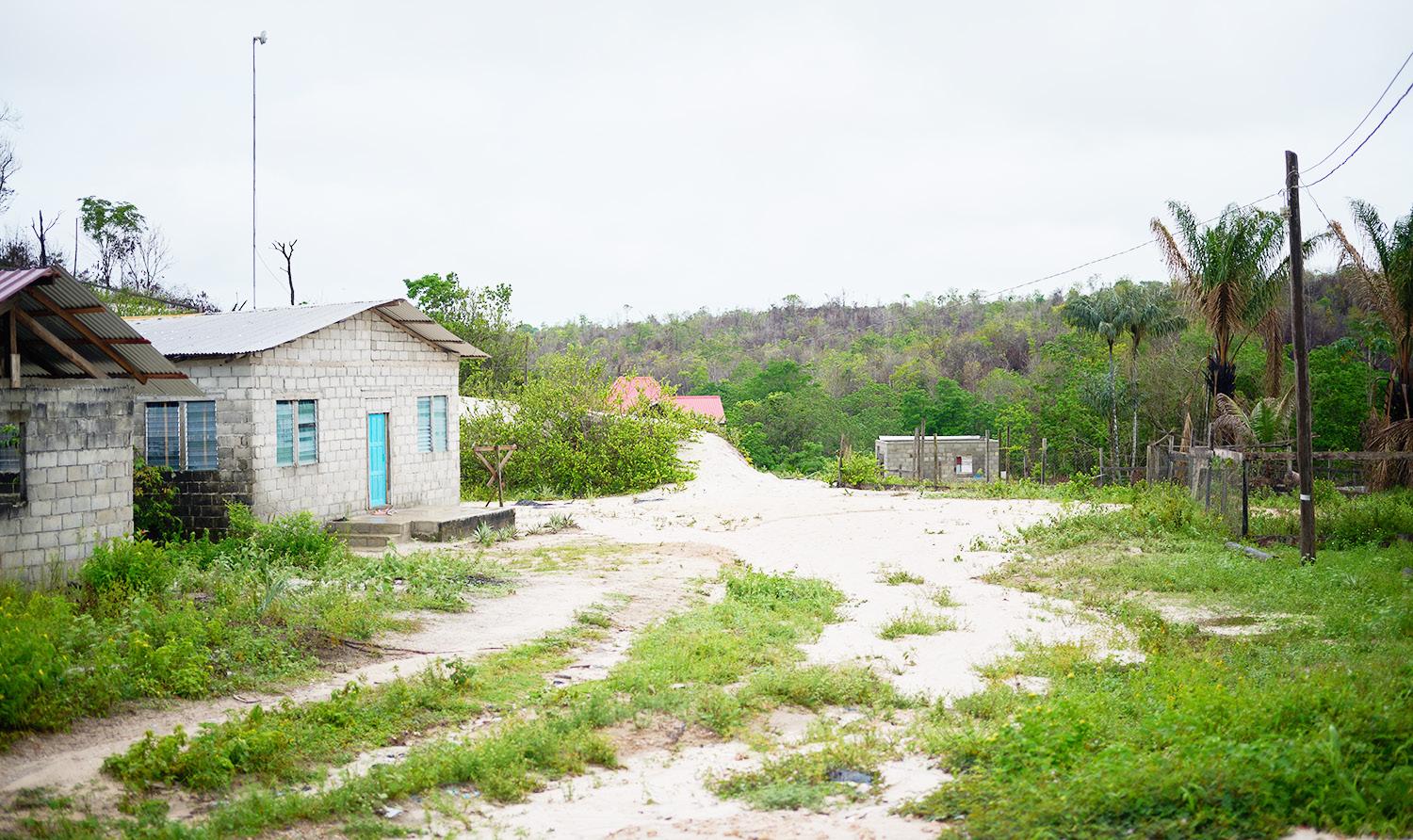
FROM PAGE X
have taken to new entrepreneurial ventures, such as agriculture and mining, to different degrees. Lacell stated that this was not always the case, as he stated, “I used to be more or less in the interior. Because this is Linden, so I would work in the interior. Or I would work at BOASAI. It is not
I am from, it was more tracks and alleyways, here are driveways and roads.”
Hard work is how Lacell says he had made the change for himself. His transformation and rise are truly inspiring, coming from a place where people thought differently of you simply because of where you are from. Growing up as the last of
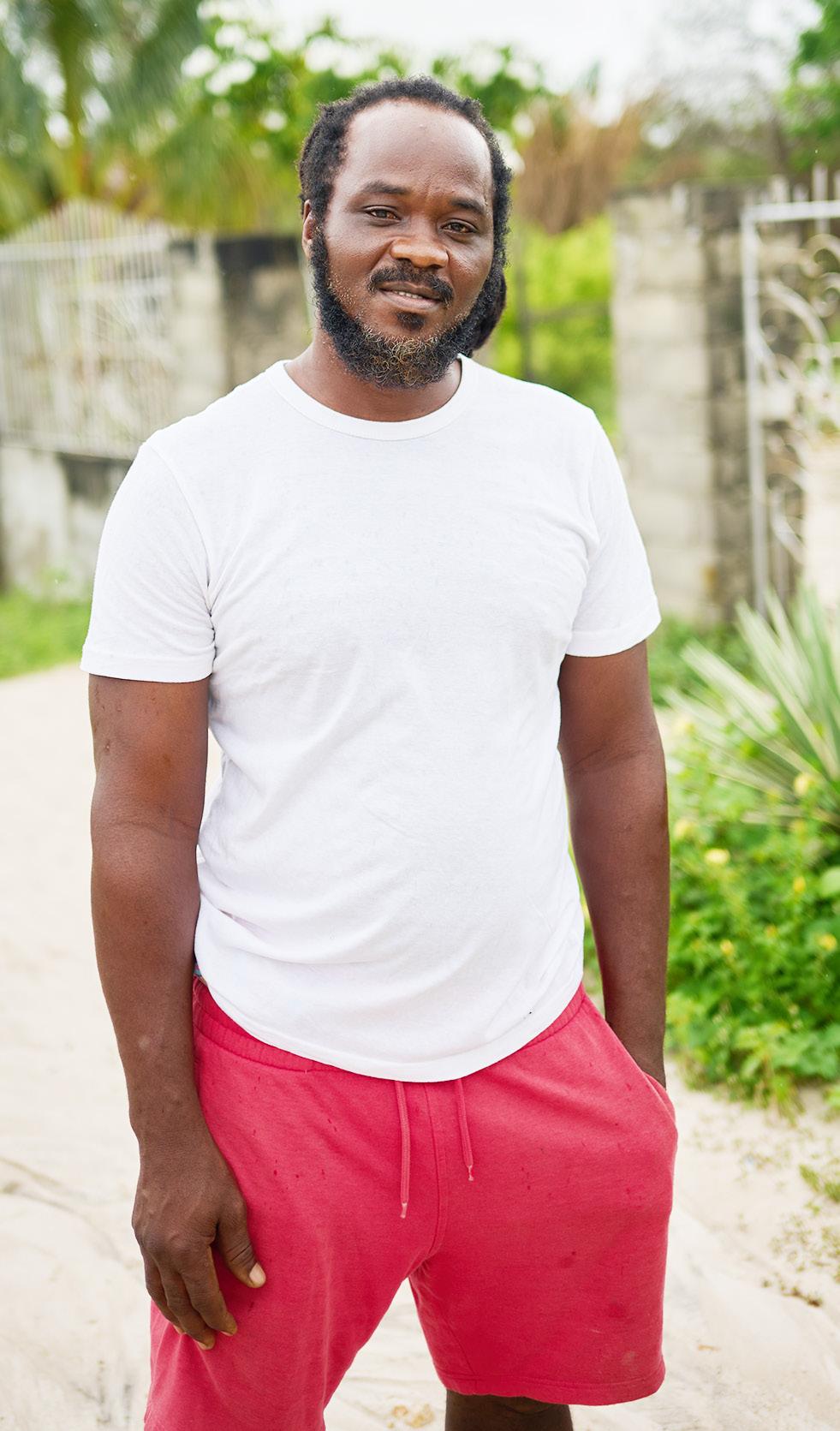
easy to get a good job if you are not in something like construction, masonry or carpentry work.”
Leaving him home was not easy. Not only because he was leaving his home behind, but he left to rebuild a life for himself. Lacell took on many jobs, mostly mining and construction. Years ago, these were the options for work. However, he took the chance and moved to the budding community of Block 22. He knew it would be difficult restarting, but he also knew it would be better. As he stated, “I knew moving here would be different. I knew it could not be the same like it was before. Where
ten siblings, Lacell knew early on that he had to make his own chances. He began working quite young and has not stopped since. As he stated, “Everything I have today is from work, bush work and so on.” But working is just the tip of the iceberg. Lacell shares that vision also has a lot to do with his personal growth. Working is good, but working with an idea of where you want to be is crucial. As he added, “It all starts in your mind. It is about knowing where you are and where you want to be. But it is a challenge, so you have to step out and just step up.”
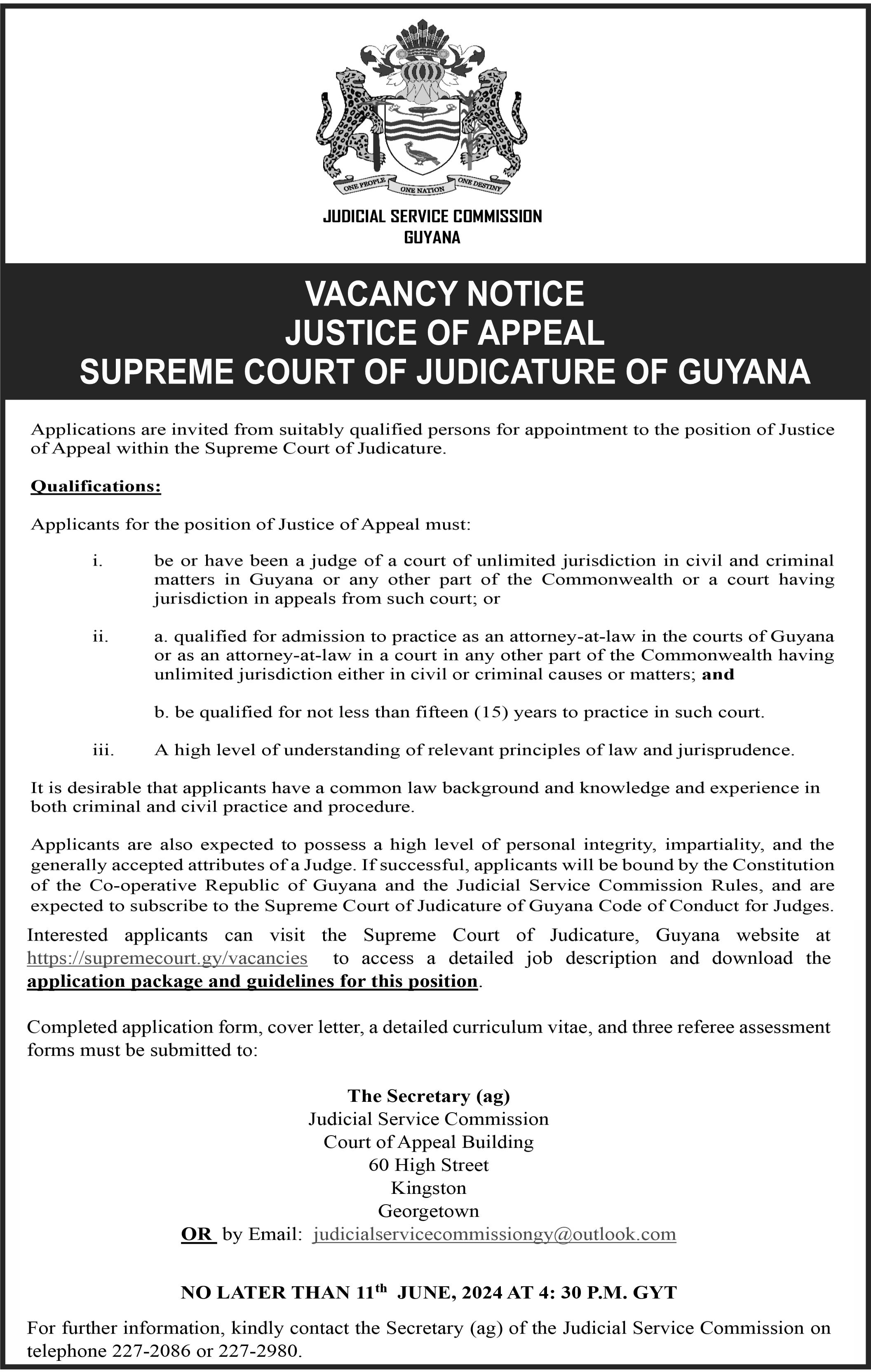
FROM PAGE VI
ty. Nikola says that the neighbours saw less of each other throughout the years. The way she sees it, community members have lost what it means to be a community. As Nikola puts it, “The only thing that has changed is that people are more selfish, more self-oriented.” Linden and Block 22 are communities built by the people for the people. However, today, people seem to have lost what it means to be a village. But does that mean that they have lost what they mean to each other? Nikola is not quite sure.
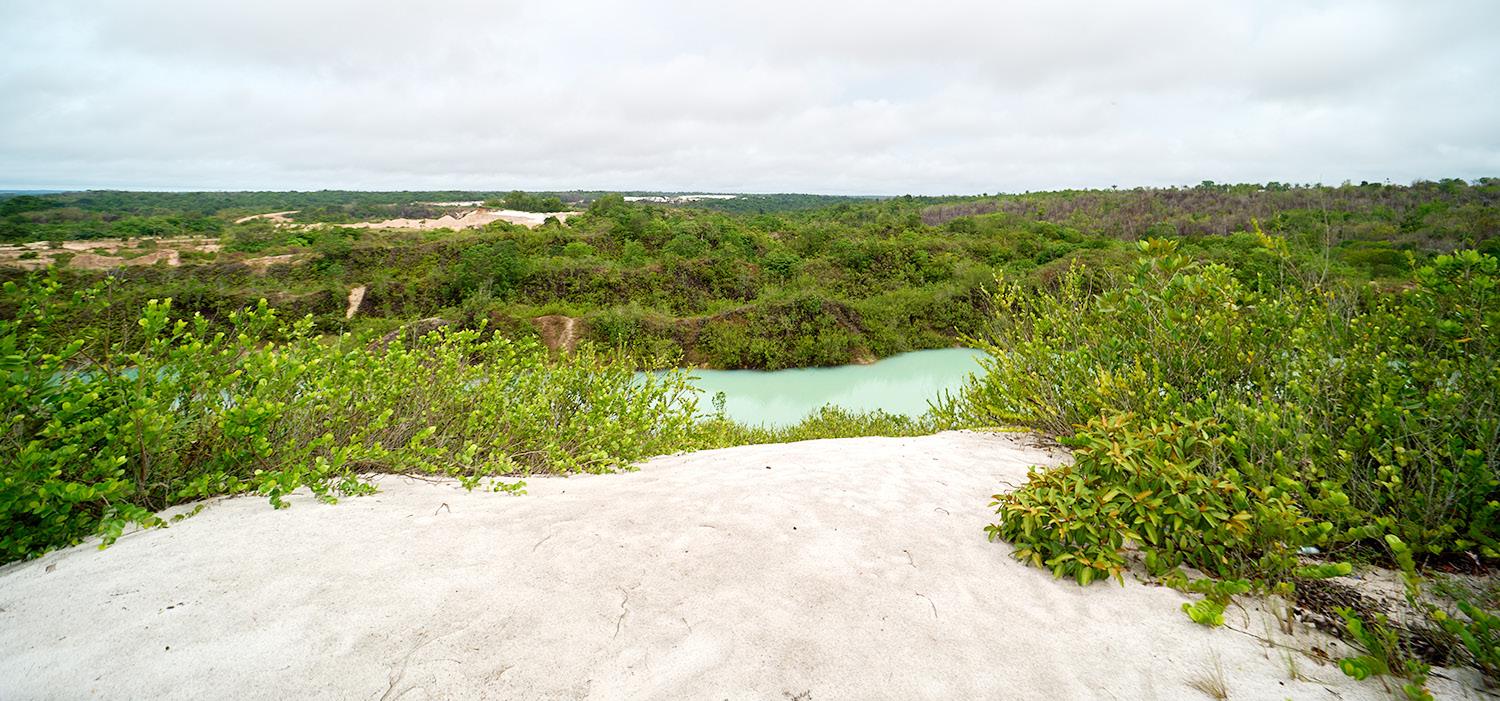
All hope is not lost for Lindeners and people of communities like Block 22. Lake Road, where Nikola calls home, is still an old-fashioned village.
People of the community still hold their vil-

lage gatherings and talk about the community's most recent developments. This can be found in many of the township's smaller communities. In Nikola's opinion, political strife is unity’s biggest contender. In a place as diverse as Linden, people are as divided as their views. This
beautiful melting pot of people gets somewhat heated. “In my opinion, the people in Linden are being divided by politics. Politics have a role to play in this community with the way people operate and the way they think. I am seeing it, and I am seeing the gap widening.” Nikola
shares a message of unity that more should preach. That unity is for the people, and it should start with the people. “I think in order for a positive change to be seen in this community, the division needs to stop. But there is a division. We need inclusiveness.”

FROM PAGE VII
tunities taking root in Block 22. It was not an individual effort. However, members of the community, young and old, worked with each other. They built homes for one another and cleared lands for those who could not, crafting a village.
As Kirk noted, “Most of us were young people, small boys who came and started burning coals. And then we realised that this place is nice. We started chopping and clearing away. We opened up and started to build some
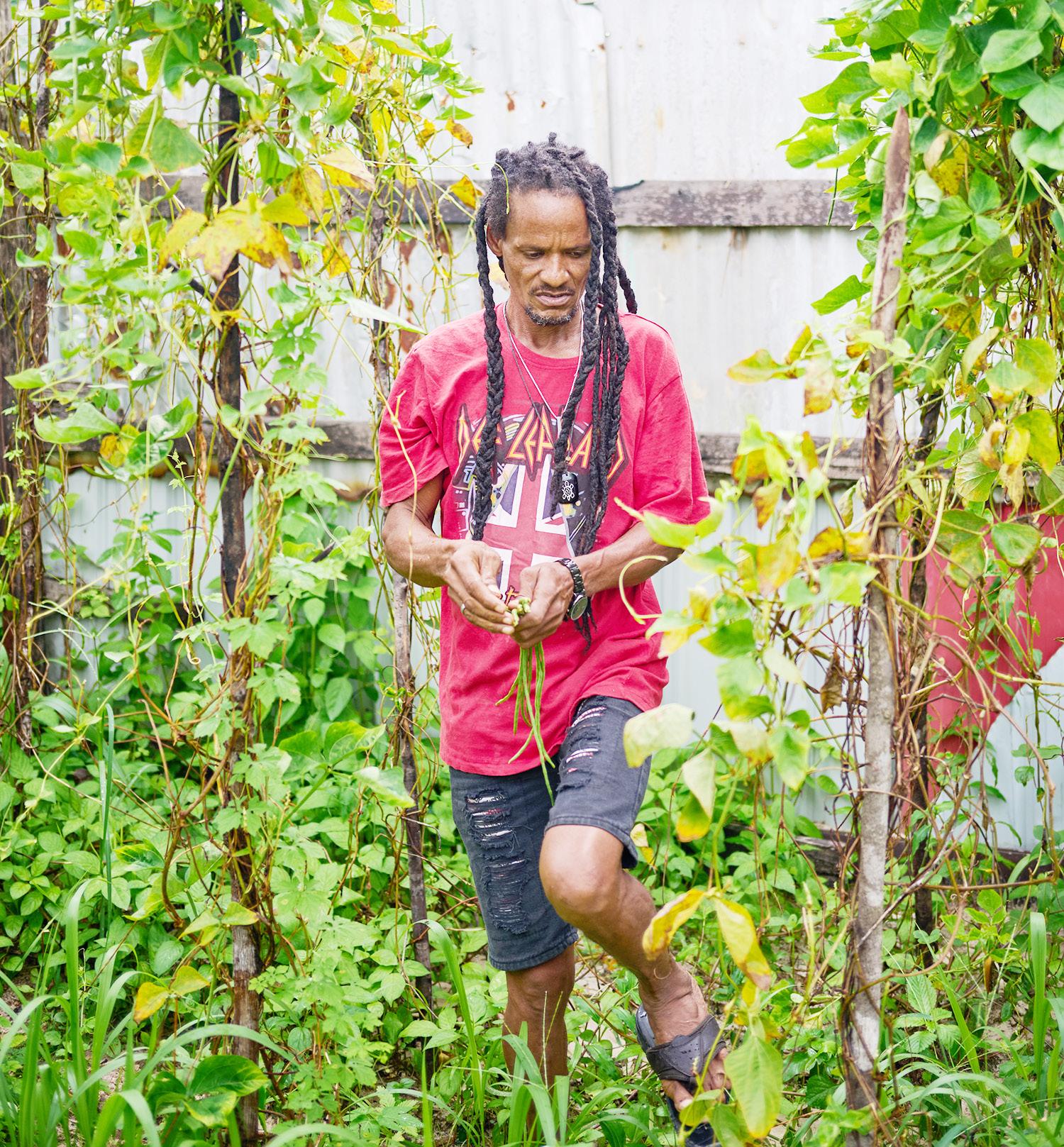

shacks. And people who passed through to go to the lake would go back and say they saw people building up there. And next thing you know, big people came with their children, and it would explode from there. Because it was not just young people anymore.”
As the community grew, so did its popularity. Soon, Block 22 was a well-established community. There were some challenges, but over time, various people
have worked and championed for the community’s development. As Kirk stated, “People would come in and ask for a piece, and that's how the community, Block 22, started to develop.” The village has come a far way from what it once was.
Although Block 22 began as a squatting areaand some may argue that it still is - the community has developed into a well-established housing scheme many are proud to call
home. Block 22 is equipped with light and water, and reports are that the community is on its way to being regularised. Recent infrastructure works have been taking place in the community. “This community, Block 22, is about 27 years old. I cannot remember why it was called Block 22,” says Kirk. And the community continues to grow, with community spirit and support at its heart.


A FEW years ago, the American Dental Association, of which I am a member, held its annual convention, which thousands of dentists from all over the globe attended. I happened to be in attendance, and it dawned on me that we Guyanese are better off in some ways than we think.
It is estimated that 98% of Guyanese can read and understand this newspaper. We should be proud of this fact,
especially considering that we are more functionally literate than most of the world’s nations, including Brazil and the United States. But despite this fact, we have not been taking full advantage of our fortuitous situation generally in terms of health guidance and, particularly, oral health education.
Participants once again emphasised printed communication's vital role in the fight to minimise dental caries and gum disease. The organisation
currently distributes millions of pamphlets as part of its national oral health education programme. Extracts from one of those pamphlets are presented hereunder.
Daily brushing and cleaning between teeth are important to your dental health because they remove plaque. Plaque is a thin, colourless, sticky film that constantly forms on your teeth. When you eat foods containing sugars and starches, plaque bacteria produce acids
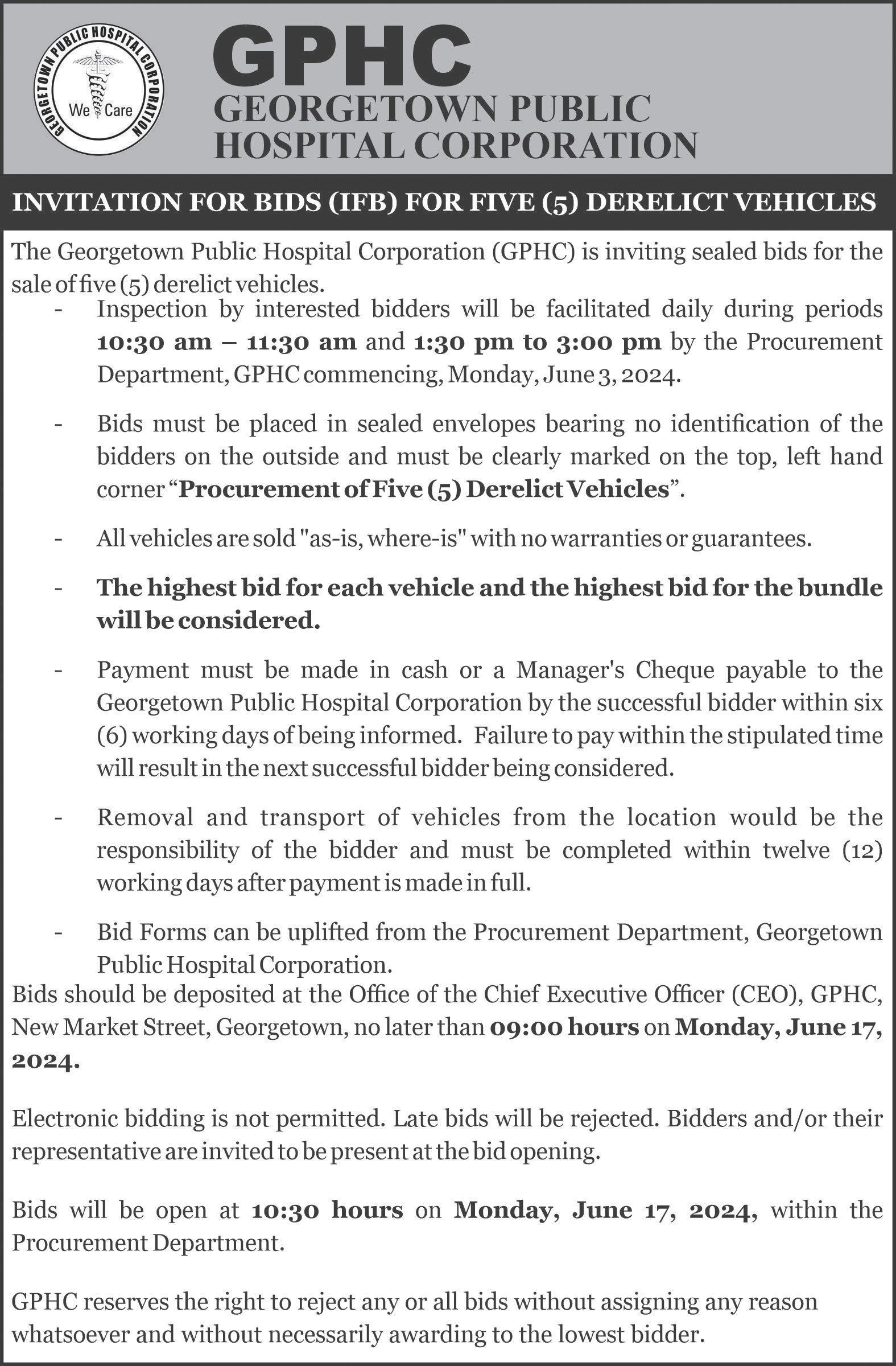
that attack tooth enamel. The stickiness of the plaque keeps these acids in contact with the teeth. After many such attacks, the enamel breaks down and a cavity forms.
If plaque is not removed with daily brushing, it eventually hardens into calculus (tartar). As calculus forms near the gumline, gums can become irritated and inflamed. They become swollen and may bleed. The gums begin to pull away from the teeth and form pockets that usually become infected. If gum disease is not treated properly, the bone supporting the teeth is destroyed, and healthy teeth may be affected.
It may surprise you that 50 percent of adults over the age of 18 and 75 per cent of adults over the age of 35 have some
degree of gum disease. It is never too early to start fighting back. Your dental team can remove calculus from your teeth and treat gum disease that has already appeared. But daily dental care is in your hands. Brushing removes plaque and food particles from the inner, outer and biting surfaces of your teeth. Several different methods are acceptable. One acceptable method for removing plaque is as follows: Place the brush at an angled position on the gums. Gently move the brush back and forth in short (half a toothwide) strokes. Brush the inner tooth surfaces, followed by the chewing surfaces. Use the ‘toe’ of the brush for the inner front tooth surfaces. Do not forget the posterior faces of the last molars. Finally, brush your tongue.
For general use, select a brush with soft, end-rounded or polished bristles. The size and shape of your toothbrush should allow you to reach every tooth. Worn-out toothbrushes cannot properly clean your teeth and may injure your
gums. Once the bristles start to turn backwards, it is time to change the brush. Usually, this occurs after three to four months of use.
One way to clean between the teeth is with dental floss. Flossing removes plaque and food particles from between teeth and the gum line areas a toothbrush cannot reach. The following suggestions may help you learn about flossing. Break off about eighteen inches and wind most of it around one of your middle fingers. Wind the remaining floss around the same finger of the other hand. This finger will take up the floss as it is used. Hold the floss tightly between your thumb and first finger with about an inch of floss between them. Use a gentle, “sawing” motion to guide the floss between your teeth. Hold it against your tooth, scraping the other side of it, as you guide it gently beneath the gum line.
If none of the others is, this article is worth cutting out and keeping for constant reference.


I WAS 16 when I first learned what the word “virtuous” meant, and ever since then, I’ve tried to live a life that exhibits just that. To be virtuous means to be good or of moralities. A life of virtue can become a habit. The word “virtue” originated from the Latin root vir, for man. Initially, the word virtue meant manliness or valour. It was similar to the expression of “man of character,” but eventually, the word became associated with a sense of moral excellence as time progressed. The Philosopher Socrates posits that virtue is a type of knowledge. It is the knowledge of knowing what is good and what is evil. However, I believe being virtuous is beyond simply knowing what is good. It also means intentionally doing good. Sometimes, doing good may not always be pleasant
for some people. In fact, the word “good” can also be very subjective. People associate it with different acts and meanings. However, there are universal acts of kindness that we can all relate to and do in our everyday lives, from intentionally looking out for random strangers in times of need to intentionally being an honest employee when working with cash. You can turn a virtuous lifestyle into a habit of always living by morals. If I’m to be honest, the world is already filled with virtuous people, but it wouldn’t hurt to have many more. A simple Google search will list examples of virtues with descriptions such as humility, compassion, empathy, forgiveness or trust. If you’re intentionally looking to live a virtuous life, I would advise you to read more on what it means and the various types of virtues. There are many, as I only listed a few. You can
start by actively understanding what each one means and which ones you’re comfortable with.
Based on our cultural experiences, our understanding of each virtue and our understanding of “goodness” will vary. However, the general concept to remember is to do good in everything you do. Strive for moral excellence in all aspects of your life. That’s it, and that’s all. In return, your acts of virtue will make the world a better place, and everyone around you, yourself included, can draw from this positivity. It doesn’t mean you’ll do something just to simply do it because it’s the right thing to do. It also doesn’t mean you’ll do it without intention or a pure heart. To be virtuous also means being intentional and mindful of our acts. The Philosopher Aristotle best described what it means to
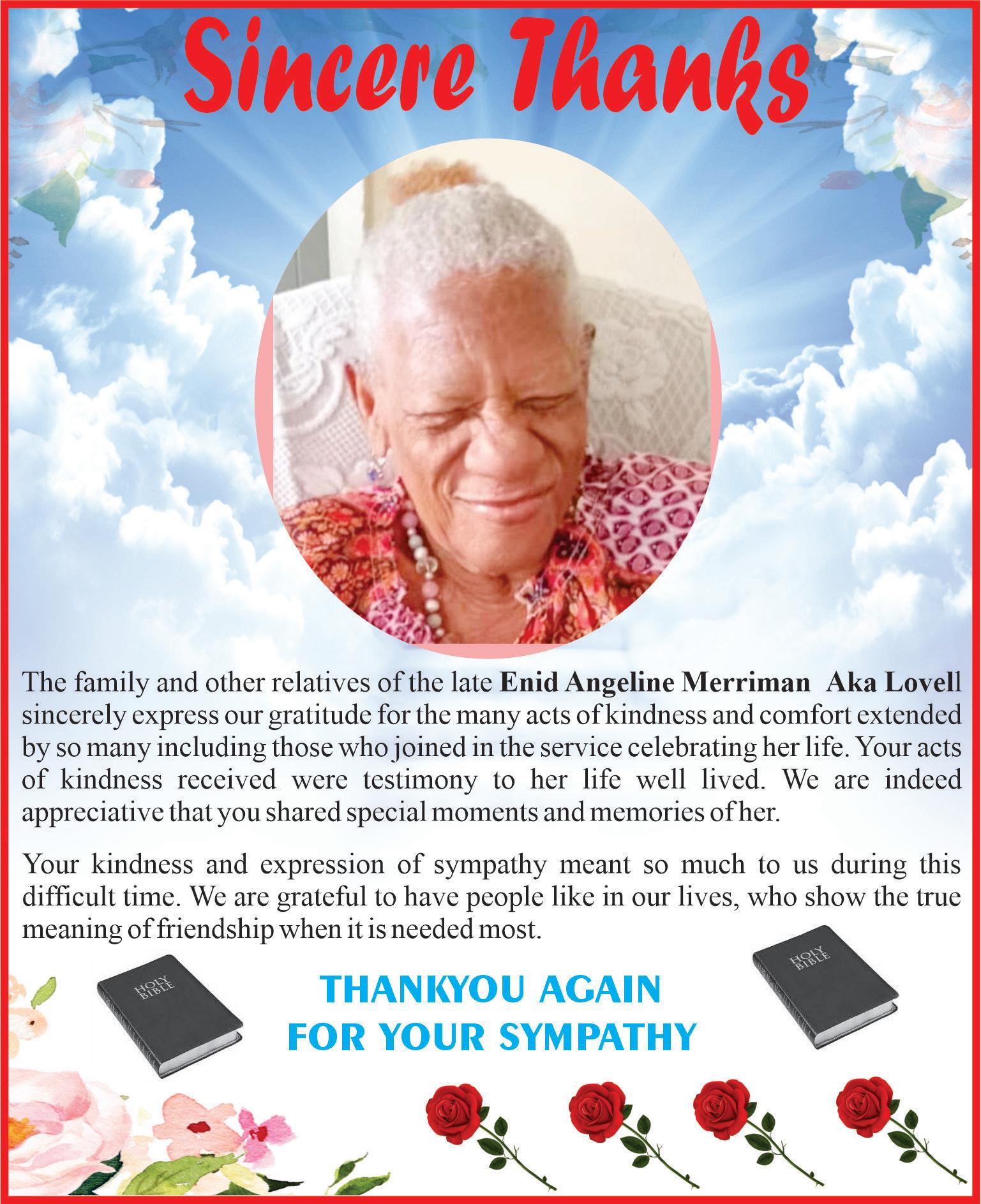
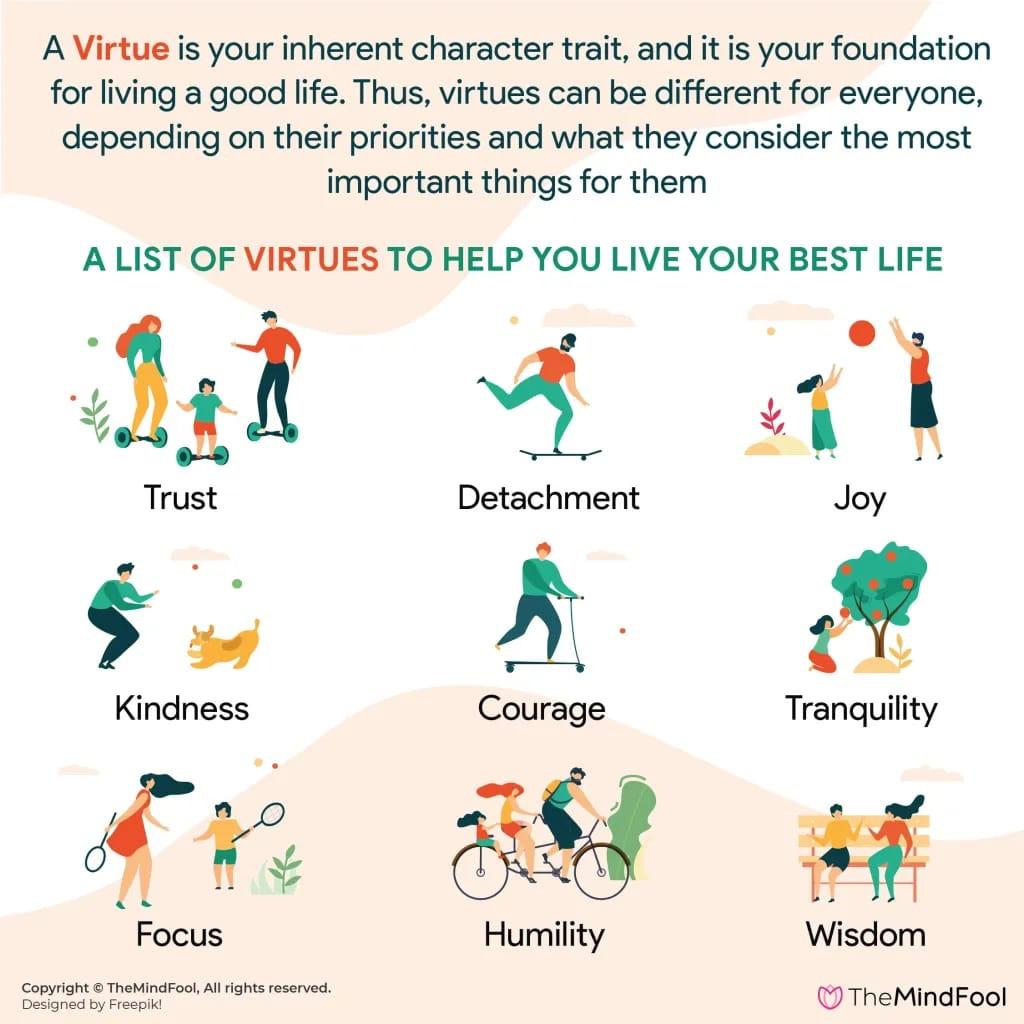
be a virtuous person. He explained that, “To give money away is quite a sim-
ple task, but for the act to be virtuous, the donor must give to the right person, for
the right purpose, in the right amount, in the right manner, in the right time”.



PAGES were turned as new chapters of his life were written, and, today, he stood as a successful man.
No more bleeding from thorns of the past.
As he looked out into the village, he felt happy and proud of what contribution he had made to bettering the livelihood of the community. His selfless efforts in upgrading the environment became an inspiration for others to assist, and soon, a poor fishing village became a fisherman’s paradise.
So, the day when his brother Suresh and his family came by for a short visit on their way to Suriname, the old house wasn’t there anymore. He and his family stood and stared in surprise at the splendid mansion in its place, not sure who lived there. Suresh thought to himself, “I must be in
admitted, “And I’m sorry about that.”
“Yeah, people make mistakes,” Ramesh accepted, “But here’s de ting, it too late fuh regrets and as yuh can see, ah have moved on in meh life.”
“How?...” Suresh asked incredulously, “How did you achieve this?”
“Lewwe just seh,” Ramesh replied casually, “Dat de good meh do, come back in unexpected ways and fuh me, it came from an old friend.”
Deeper regrets clouded Suresh’s face, and he said, “It’s not too late for us to reconnect as a family.”
Before Ramesh could respond, Priya came home from work and greeted her father, “Hi, Daddy.”
She looked curiously at the visitors who seemed foreign,

the wrong place.”
As Suresh stood there unsure, Rovin rode in with his CBR motorbike.
His wife stepped out of the car and said to him in a tone of mild impatience, “You should inquire if we are at the right house.”
Suresh approached the gate and asked the young man, “I’m here to see the fisherman who used to live here in an old house.”
Rovin looked at him curiously and asked, “Who are you?”
“I’m his brother from the UK.”
Rovin’s expression changed to an unwelcoming look, but he said cordially, “Just a moment, I’ll let my father know.”
Ramesh came out five minutes later and looked at his British family from the walkway, not opening the gate to invite them in.
Suresh and his family stared at him, stunned, “This is your house?” Suresh asked in utter disbelief
“Yeah,” Ramesh said in a casual tone.
“That’s amazing, brother,” Suresh said.
“Brother?” Ramesh questioned in surprise, “Now yuh see me as dat?”
“I know things didn’t go too well the last time,” Suresh
grief and dey hurt meh suh deep that I, a man, had tuh cry.”
Shanti got up and hugged her husband to comfort him.
“I’m not saying tuh relive dat pain, yuh know how bad dat can be fuh yuh.”
Ramesh inhaled deeply to compose himself, and he said to his wife, “Dat door would not be open tuh dem as long as I am alive.”
He slowly walked up the curved ornate stairway, a man who had walked many rough roads and missed death at sea. He sat down slowly, breathing a little unevenly.
No one knew about the illness he had been diagnosed with
since his mid-thirties except his wife, the one he knew would hold his hand to the end.
It was a small heart defect that had developed and needed regular medication and exercise to manage it. He had not been given a timeline to live by the doctors, just the understanding that as he grew older, his heart would grow weaker until one day…
That was a stone life had thrown at him that he could not have dodged.
Life went on for all it’s worth, and one cool morning, as he sat looking at the glorious sunshine, he felt a slow paralysis from his weakened heartbeats.
“Shanti,” he barely managed to whisper.
And as though she knew his end was near, he felt her gentle hands on his shoulders, sharing that last timeless view of the sea with him as it seemed to rise and touch the sun, in a moment of soft intimacy.
His shoulders sagged, his arms became limp, and he exhaled slowly, taking one last breath as his eyes closed.
The sea seemed to know, as the waves rose and crashed against the seawall, the wind blew chilled that night as the village mourned a good man.
On the funeral day, his brothers came to view his body and pay
their respects but were not allowed, for it was Ramesh’s wish.
“It’s too late now, isn’t it?” Shanti asked calmly through her grief.
Ramesh’s two sons stood between their father’s coffin and his two brothers, and Shanti relayed to them what her husband wanted them to know.
“He educated his children, but he still took his sons out to sea and taught them never to forget where they came from.”
The brothers could find no words to say in response and walked out of the house with deep regrets.
At sea, Ramesh was buried.
and she quietly asked, “Who are they?”
At that moment, Shanti stepped out on the patio and recognising the visitors, she looked at her husband, surprised, “Aren’t yuh gonna invite yuh brotha and his family in?”
“Nah,” Ramesh answered, unforgiveness in his voice, “When ah was poor and lived in ah old house, he and his family scorn us. Now dat ah become rich and living good, it should stay de same way.”
He turned and walked into his house, leaving his wife and daughter standing there a bit awkward. Shanti forced a smile and apologised for her husband, “Ah sorry about dat.”
“It’s okay, I deserved that,” Suresh said, his words laden with guilt.
And he left with his family.
Shanti sat on the sofa near Ramesh and asked quietly, “Yuh okay?”
He sat there silently, a pensive look on his face, and then he sighed deeply and looked at her.
“Ah gon be fine, ah was waiting fuh dis day tuh see de shock on he face.”
Shanti knew how deeply his brothers had hurt him but she still said to him, “Maybe yuh can think about forgiving dem.”
Ramesh got up and said adamantly, “No, dey cause our motha and fadda tuh die wid
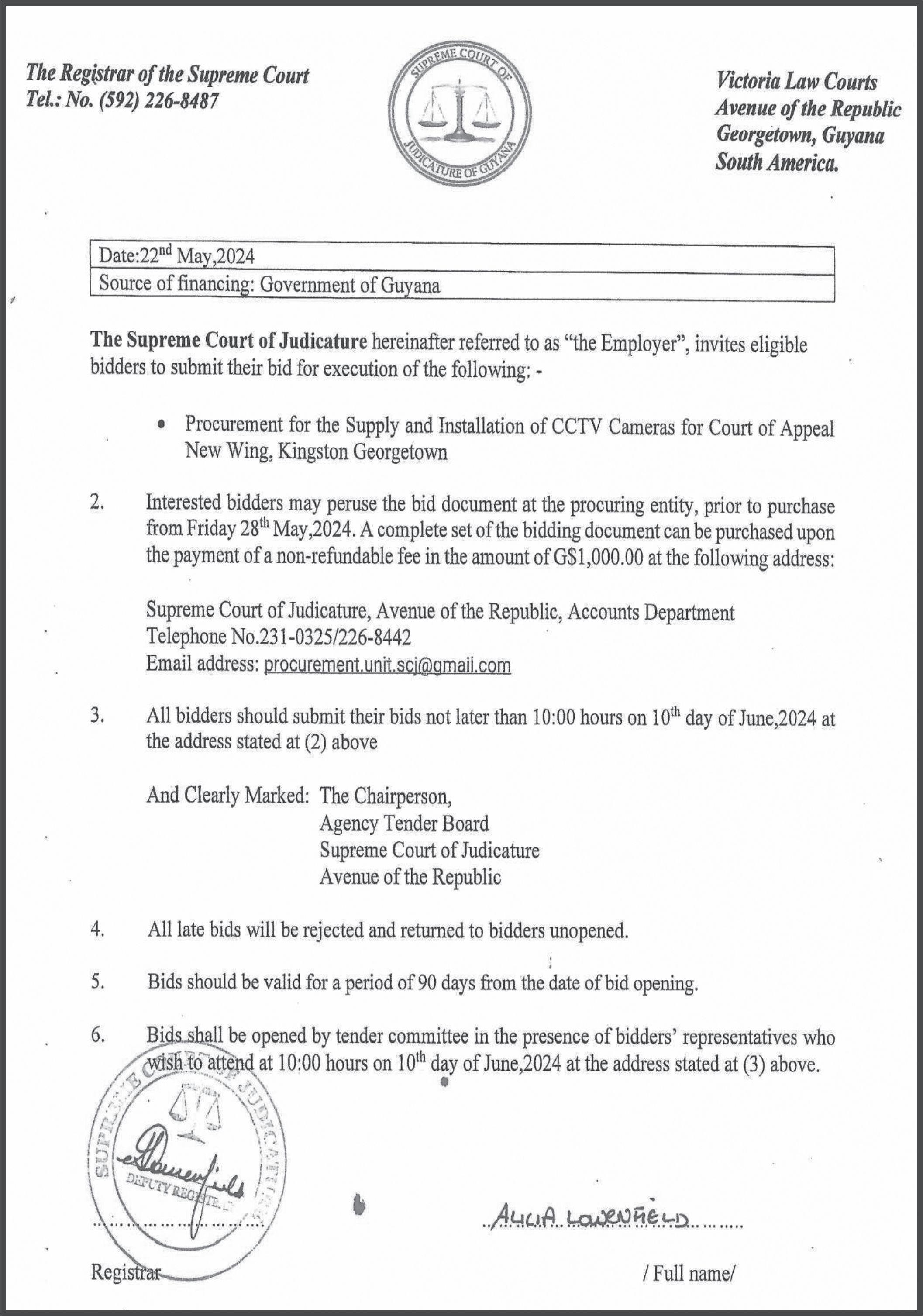


GUYANA buys five times the value of Trinidad products as Trinidad buys from Guyana, and part of the reason for this lopsided trade balance in favour of Trinidad is because Trinidad uses non-tariff trade barriers to reject Guyanese products. Examples of this unfair treatment of Guyanese exports are the rejection of pineapple shipments because the crowns were not removed, the rejection of pepper exports because they had their stems, the requirement of fumigation of agricultural products with methyl bromide in contravention of the Montreal Protocol, application of hypochlorous acid on eddoes; and even the banning of poultry meat though no trade in this product had taken place and Trinidad has so far been allowed to escape these and similar infringements without any correction or penalty.
Trinidad's most recent rejection of Guyanese products was in March/April last when four 20-foot shipping containers containing a quantity of Demerara Distillers (DDL) packaged milk and bottled flavoured water were rejected. Two containers containing the packaged milk were denied entry and returned to Guyana, while the water was restricted from sale pending "an unconventionally exhaustive examination". Mr Komal Samaroo, Chairman of DDL pointed out that all requirements were satisfied by his Company and that the products were even approved by the US Food and Drugs Administration and had been exported to other CARICOM states without encountering any problem as the one presented by Trinidad.
Unlike in the past, this recent rejection of the DDL products has resulted in widespread national outrage, and one of the reasons for this is that DDL is one of Guyana's flagship companies. Its products are known to be of uniformly high quality as, for instance, it is universally accepted that its rums are the best in the world; consumers regard its boxed milk as being of the highest quality and that the Trinidadian rejection of it is, accordingly, unfair and dishonest; every would-be Guyanese exporter to Trinidad now realises that he/she will eventually encounter the same discrimination; and Chairman Samaroo's integrity, honesty of purpose and commitment to the wellbeing of Guyanese and Caribbean people are known and trusted in the business community and by the public and all these facts are attested by the support DDL's case has received nationally across the
board:
The Ministry of Foreign Affairs and International Cooperation, in its release said, “The refusal of entry to the dairy products wholly produced in Guyana by CARICOM member state is an affront to the spirit of a Caribbean integration agenda and must not be accepted. It is appreciated that regional products must satisfy the necessary sanitary and phytosanitary rules, and technical regulations as well as any product-specific rules of origin required to qualify the products for regional preferential treatment. Available information, however, indicates that the dairy products from Guyana destined into Trinidad and Tobago were in full compliance with these requirements."
The Georgetown Chamber of Commerce and Industry (GCCI), one of the Caribbean's oldest trade organisations, in its release, said, "These non-tariff barriers (NBTs), particularly targeting the Agricultural Sector, undermine CARICOM 's goal of reducing the regional food import bill by 25% by 2025. The GCCI views these barriers as attempts to thwart the efforts of HE Dr Irfaan Ali, who has been leading CARICOM's initiative to remove such obstacles. Despite repeated instructions from the Council of Trade and Economic Development (COTED) to eliminate these NTBs, Trinidad and Tobago continue to flout the principles and directives of the Treaty of Chaguaramas. Many goods rejected by T&T have been accepted by other CARICOM nations, which adhere more closely to the spirit of the CARICOM Single Market and Economy (CSME). In the light of these ongoing issues, the GCCI urges the Government of Guyana to consider strictly applying the Principle of Reciprocity in trade with T&T until these NBTs are removed and T&T demonstrates good faith in its trade practices".
The Guyana Manufacturing and Services Association (GMSA) called for the immediate intervention of the Government of Guyana and the CARICOM leadership to address the DDL issue with the Government of Trinidad and Tobago. It emphasised that such trade barriers which Trinidad has erected undermine the collective efforts of CARICOM Heads of Government to achieve regional food security and reduce the regional food import bill.
The Guyana Oil and Gas Energy Chamber (GOGEC) expressed its support for DDL
and denounced the situation as a clear violation of the spirit of the Revised Treaty of Chaguaramas , of which both Trinidad and Guyana are signatories.
At the Private Sector Commission (PSC)'s Annual General Meeting held at the Marriott Hotel, Chairman Komal Singh pledged his Commission's support to Demerara Distillers Ltd (DDL) in their impasse with the Trinidad authorities. Chairman Singh remarked that, for years, Guyanese companies have been bitterly complaining about the trade restrictions encountered with the Twin-island Republic, which, at the same time, allows them to freely and easily export their products to Guyana. "Our Commission will continue to review and work with other countries to have these non-tariff barriers removed as quickly as possible."
Finally, we report on the position of the governing People’s Progressive Party as adumbrated by its General Secretary, Vice President, Dr Bharat Jagdeo: “We will insist upon full reciprocity in matters of trade . . . the way our goods and exports are treated across the Region - but in this particular case in Trinidad and Tobago - the same way their goods entering the Guyanese market will be treated. There will be full reciprocity on all the issues because if they can insist upon a phytosanitary test that we don't implement on their goods but that they want to conduct on our goods before they enter their market, then we will have to deal in the same manner as they are doing".
In the discussions DDL had with the Trinidadian authorities on April 19, DDL was advised that their milk was not approved for entry into Trinidad by its Ministry of Agriculture as Guyana is not an approved country for the importation of animal and animal products. Likewise, Trinidad and Tobago is not an approved country for importation into Guyana of animal and animal products, and the Government of Guyana must take immediate reciprocal action by rejecting entry of all animal and animal products from Trinidad and Tobago. Unless this is done, there will be no movement on the part of Trinidad regarding this matter. Two months have already passed since the matter came to the table, and Trinidad's approach is to delay it. Guyana would have to force the pace for a resolution and be prepared to refer to the CCJ if there is no positive solution.
CULTURE is a crucial ingredient of human mental and imaginative development, but it is not to be concluded as a definite conclusion of
what we are. With culture, many processes inhabit its realms and have


dual manifestations. In respect to the masthead of this column, culture is addressed between popular culture and the greater twin- the profound essence of culture. New definitions entered the stage of culture centuries ago at the request of royalty in need of court entertainment --- wheth-
er it be song, comedy or mock drama --- outside of the strict realms of religion and its rituals. Not to say that there were no symbolisms in these acrobatic acts and masquerades, but they were less strict and more open to normal responses than the ceremonial re-creations of the acts of faith and the old pageants of mythology.
MODERN INTERPRETATIONS: With the birth of the music industry and the technology to showcase musicians and actors, the term the ‘Entertainment Industry’ and popular culture emerged. This movement came
TURN TO PAGE XVIII
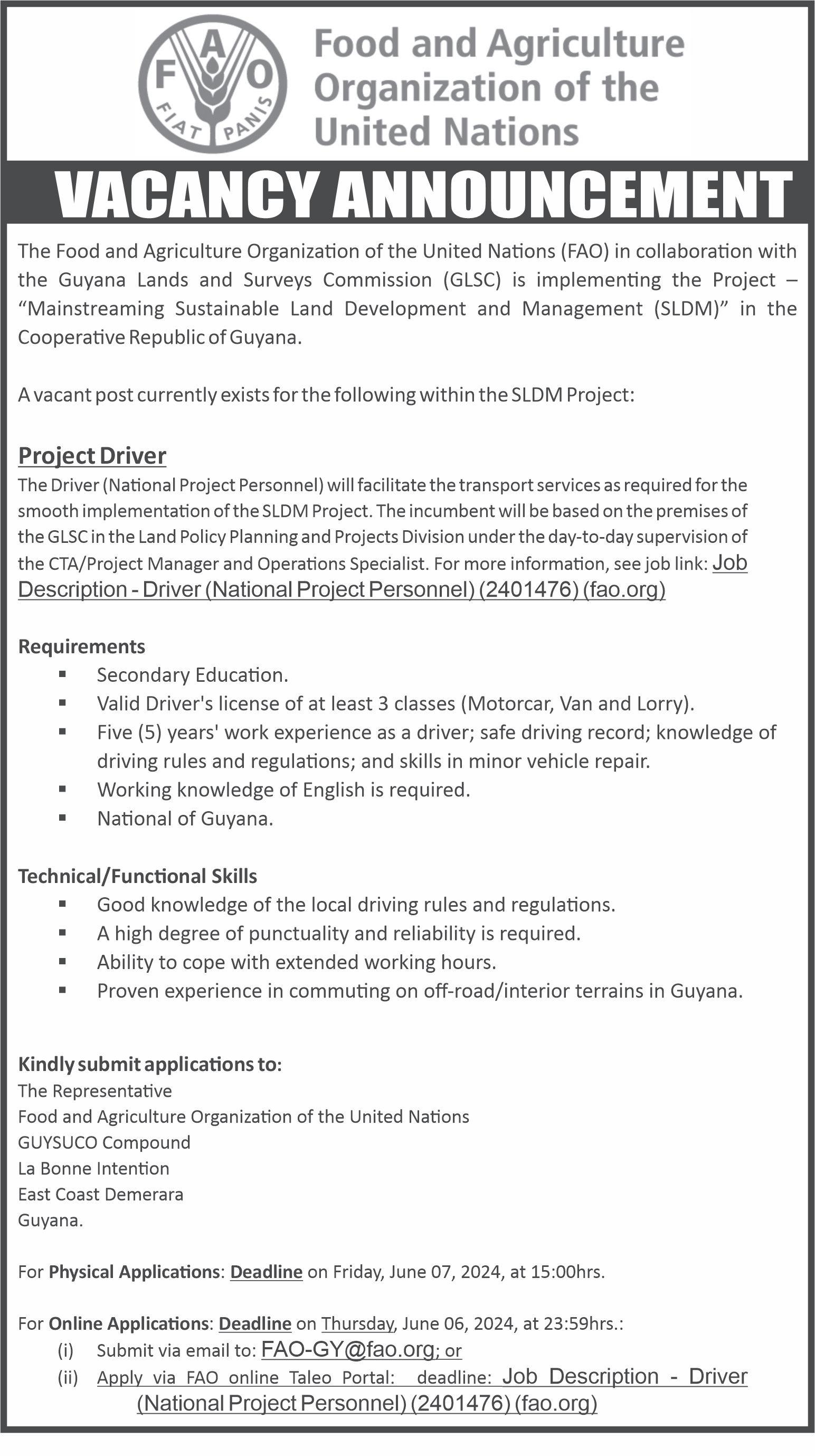
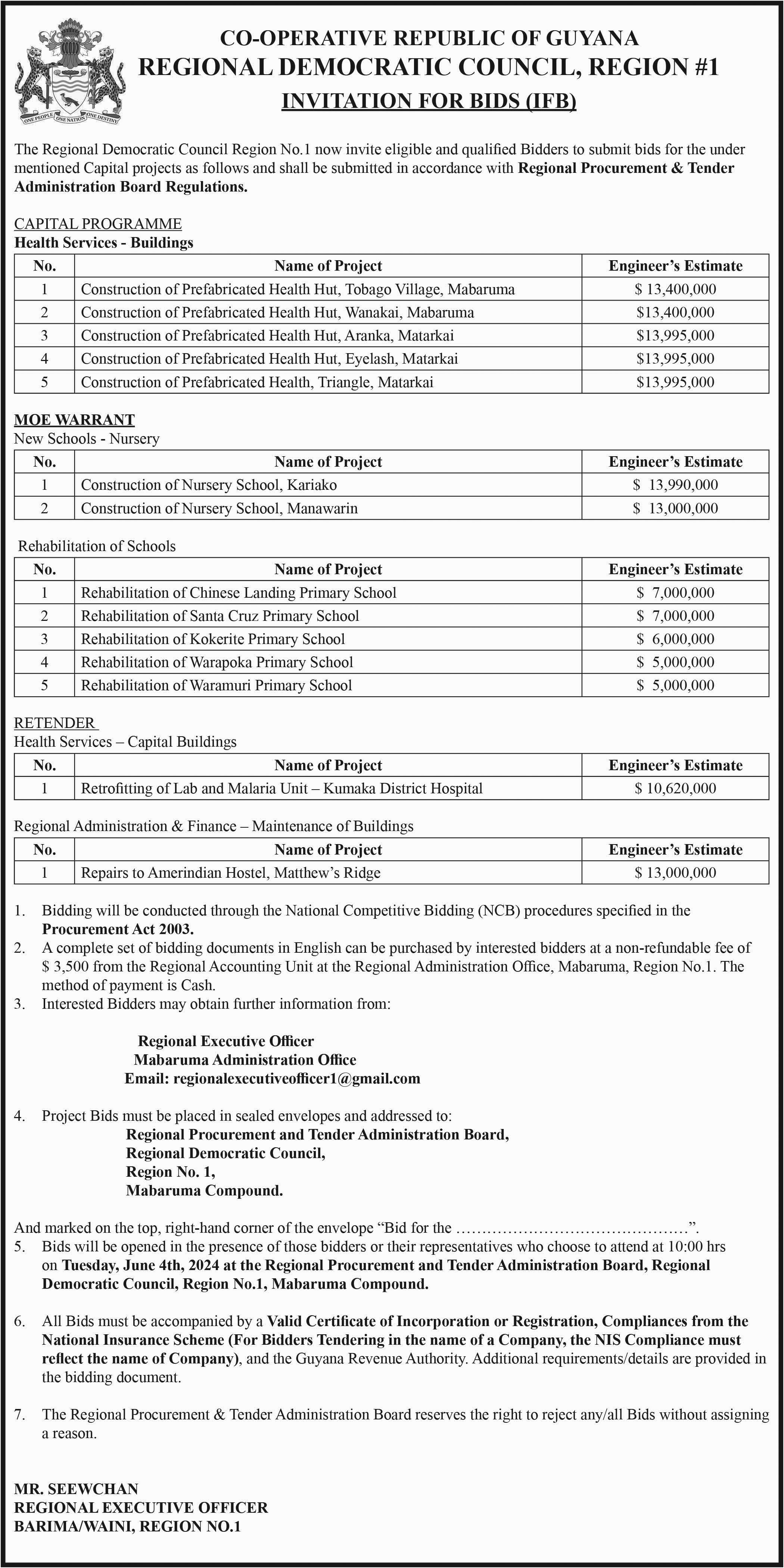
FROM PAGE XVII
with singers and bands, crooners, love songs, hair-raising musicians, and stage fashions, all of which embodied the term “popular culture" and also included movies. This was a business that enveloped persons driven mainly by the economics of entertainment. Promoters and sponsors must be convinced of their overall benefits, beyond that of the performers and their audiences.
I have had that experience working in that industry locally. However, it does not make them evil, considering that all expenses are initially divided by the sponsors and promoters. This is not to say that entertainment does not convey expressions of depth and social significance. It does -- Bob Marley and the Wailers are great examples, but that manifestation is not of the majority. However, in its greater moments, they were enveloped and absorbed by the defining nature of culture, whether grassroots or by the stages of artistic and dramatic interpretation to engage the world.
CULTURAL REALMS:
The characteristics of cultural spaces step away from strict religious systems and into interpretive archival portals and philosophies (religion is not exempted). These things question and interpret values and are mostly expressed through literature, music, art and theatre, or even costumed skits supported by poetry and rhythm. Cultural realms revolve around tangible and intangible heritage. Much of this effort is not discussed in terms of understanding today, as we struggle with influences of popular culture from other shores. Though aspects of it do unfold in discussions from inherited streams passed on and are engrained in the folk songs that we sang in school yesterday, they are unknown
to today's generation. What is valued and is referred to as personal ‘culture’ is in most cases rooted in painted scenes in the consciousness that define chapters of experiences, whether by conversations with elders or by the musical memory or lines of familiar revolutionary poetry (such as Martin Carter’s ‘I come from the Nigger yard’). These aspects merge into reflections that nurture the strength of the individual’s capability to sensibly interpret the world that one is traversing through amidst the legions of luring, transparent phantom theories willing to misguide, distort and saturate with damning outcomes, I can remember sitting in my father’s small joiner shop when I was about 10 years old, listening to his friend, ‘Uncle Moushea’, who interpreted for me the characters of the masquerade band. He was a flautist of the masquerade band. It was interesting to think of what their costumes meant and how these costumed players each reacted to the musicians. A lifetime later, I anxiously bought and read the book ‘The JUMBIES’ playing ground by Robert Wyndham Nicholls’ and realised that the masquerades of the Eastern Caribbean were tremendously different in influence from what we have here. Ours seems to have emerged from a unique source.
Popular culture -Entertainment will always be with us. It’s rooted in this age and will be managed to and fro as gigs go. But we must understand and comprehend that it does not, in most cases, embody the core culture of serious reflection that popular culture itself draws from, which is referred to as the cultural twins. So, my friends, balance the twins and there will be no confusion about priority preferences.




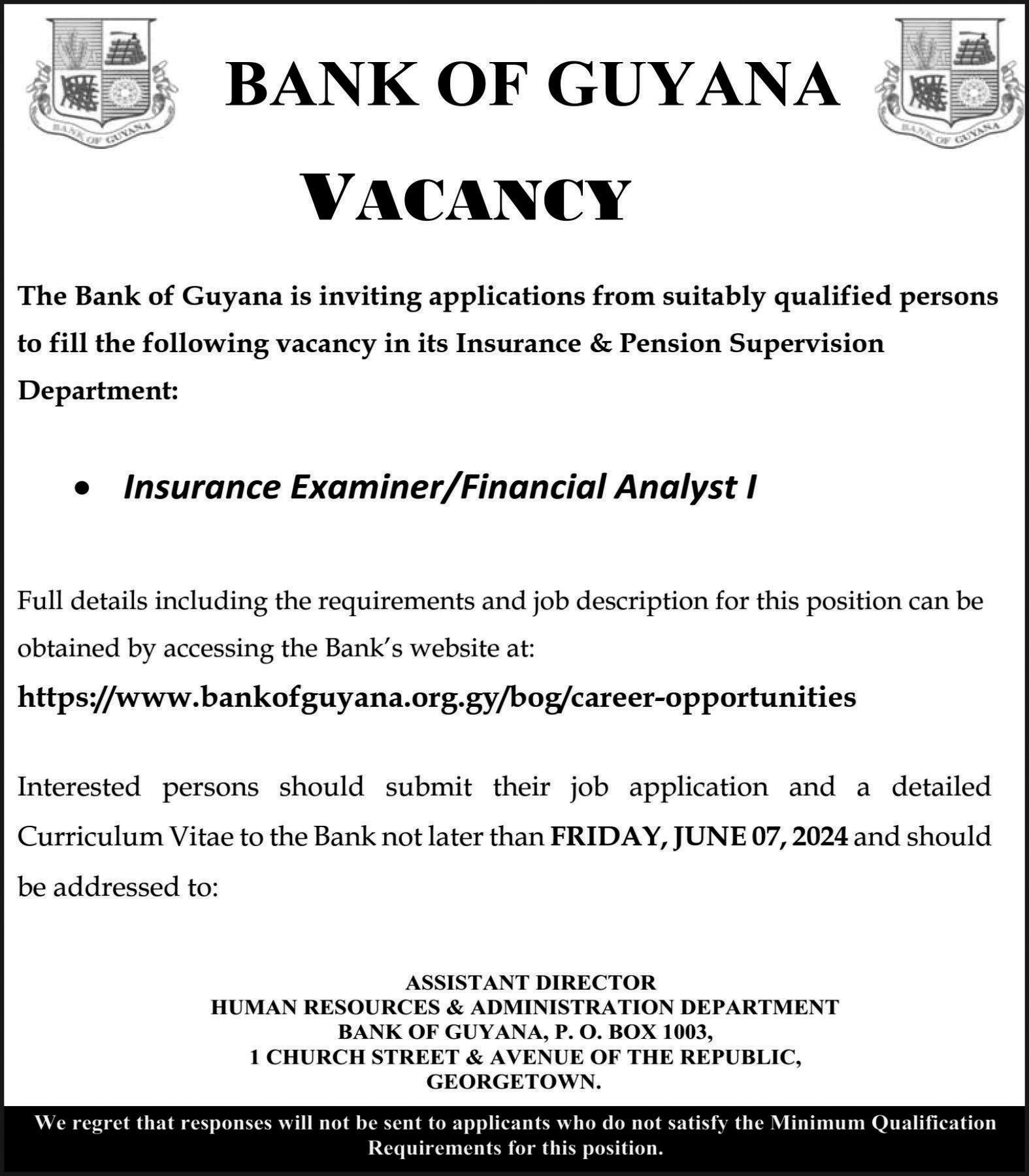
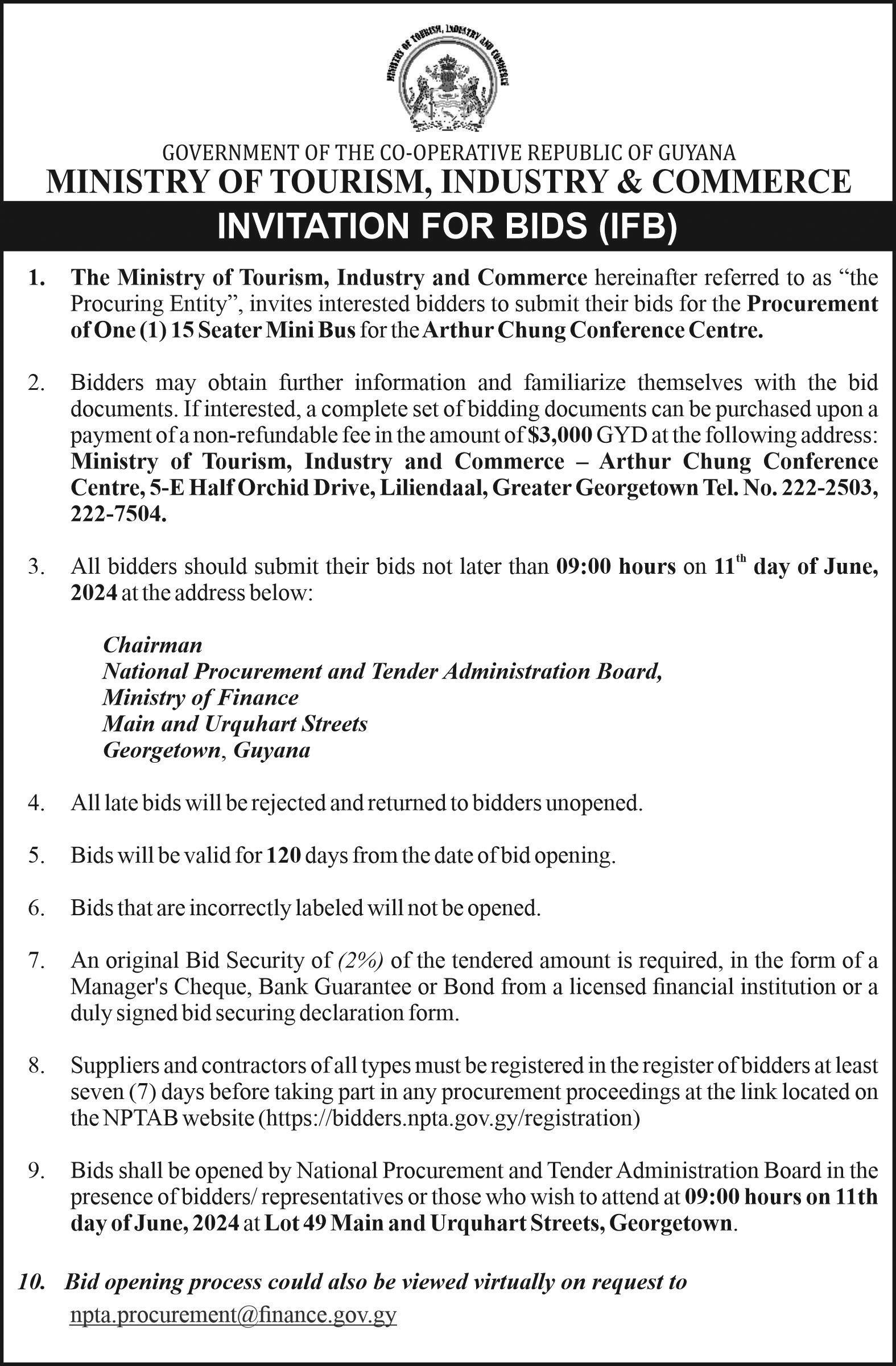





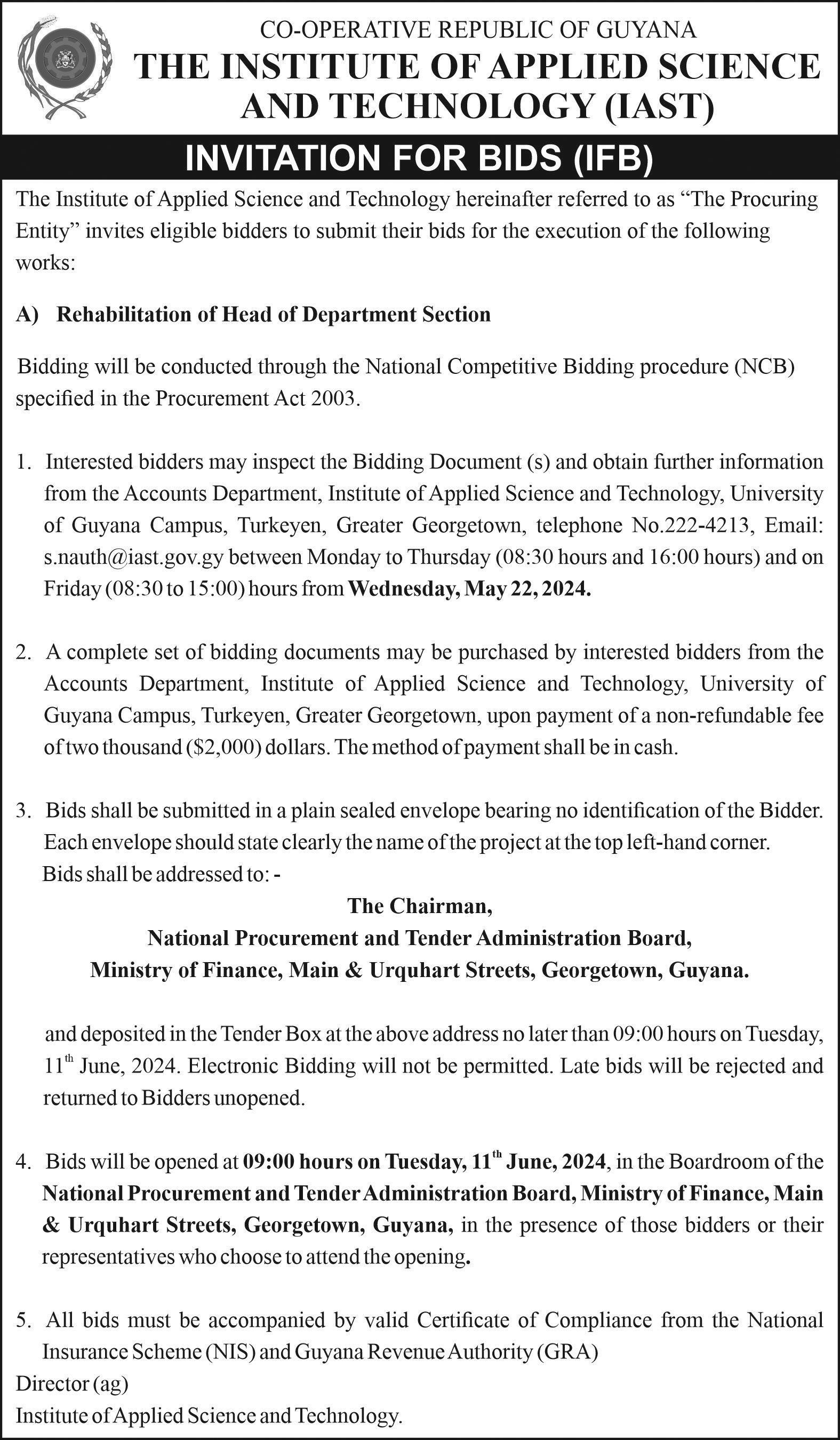


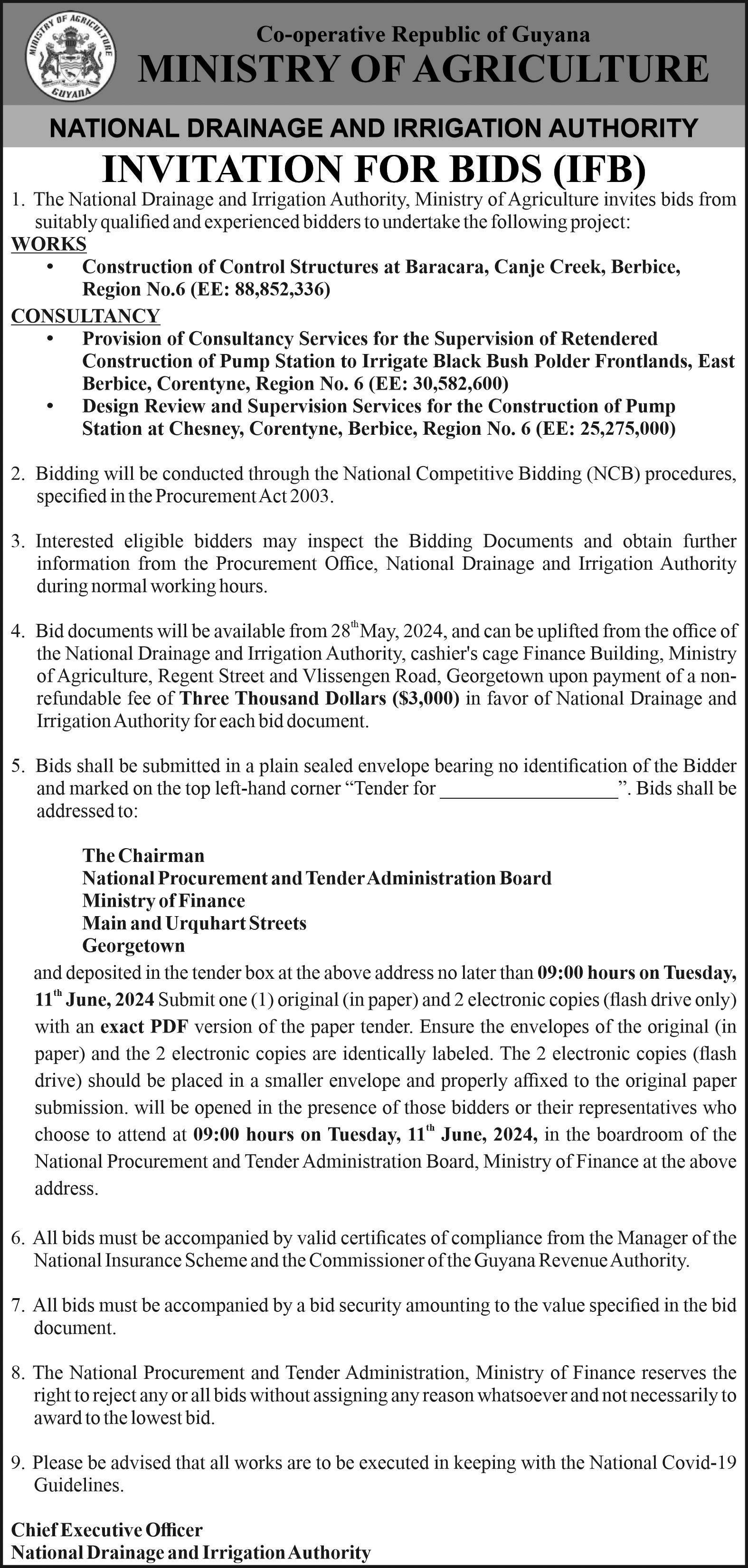

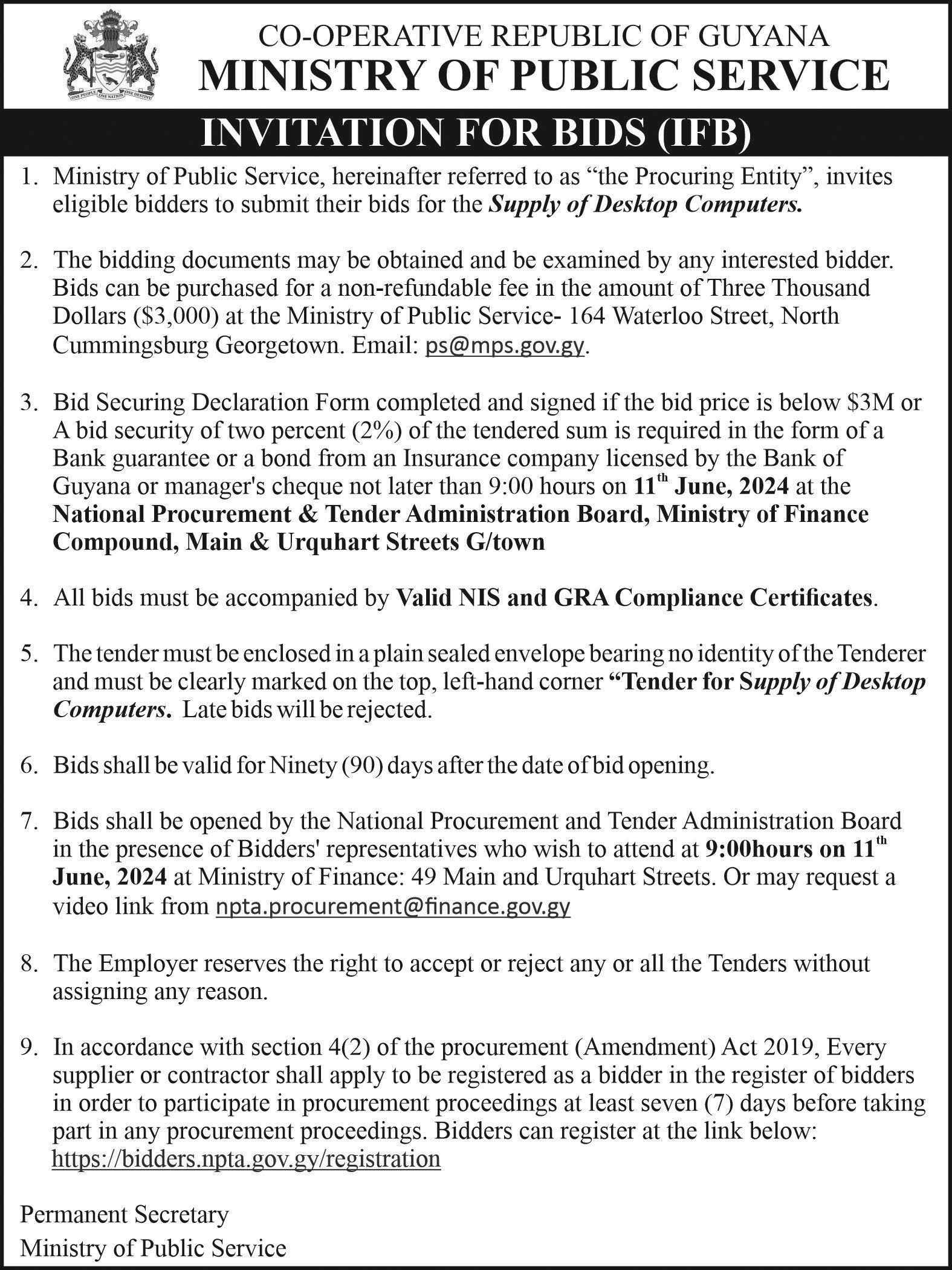


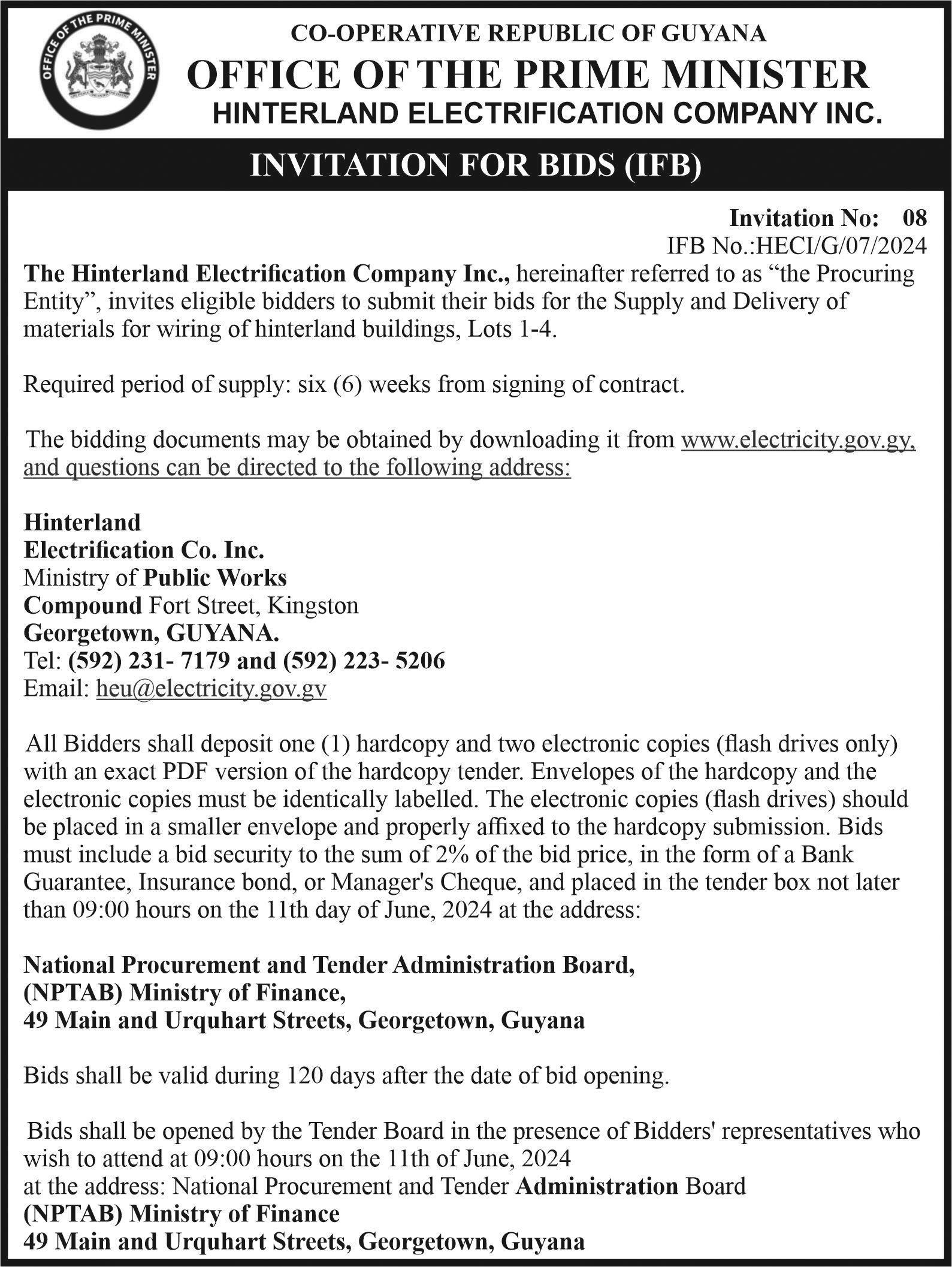





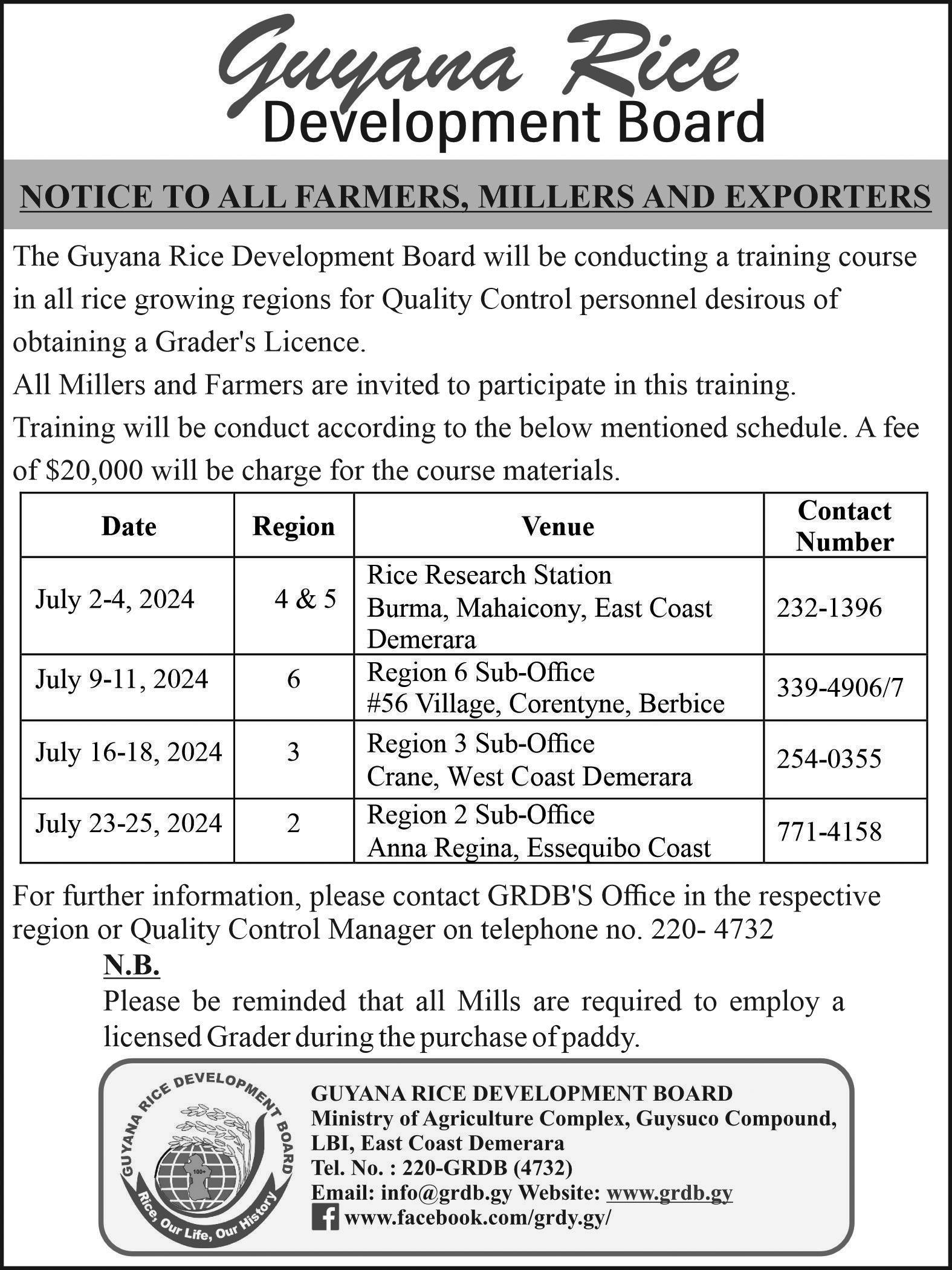



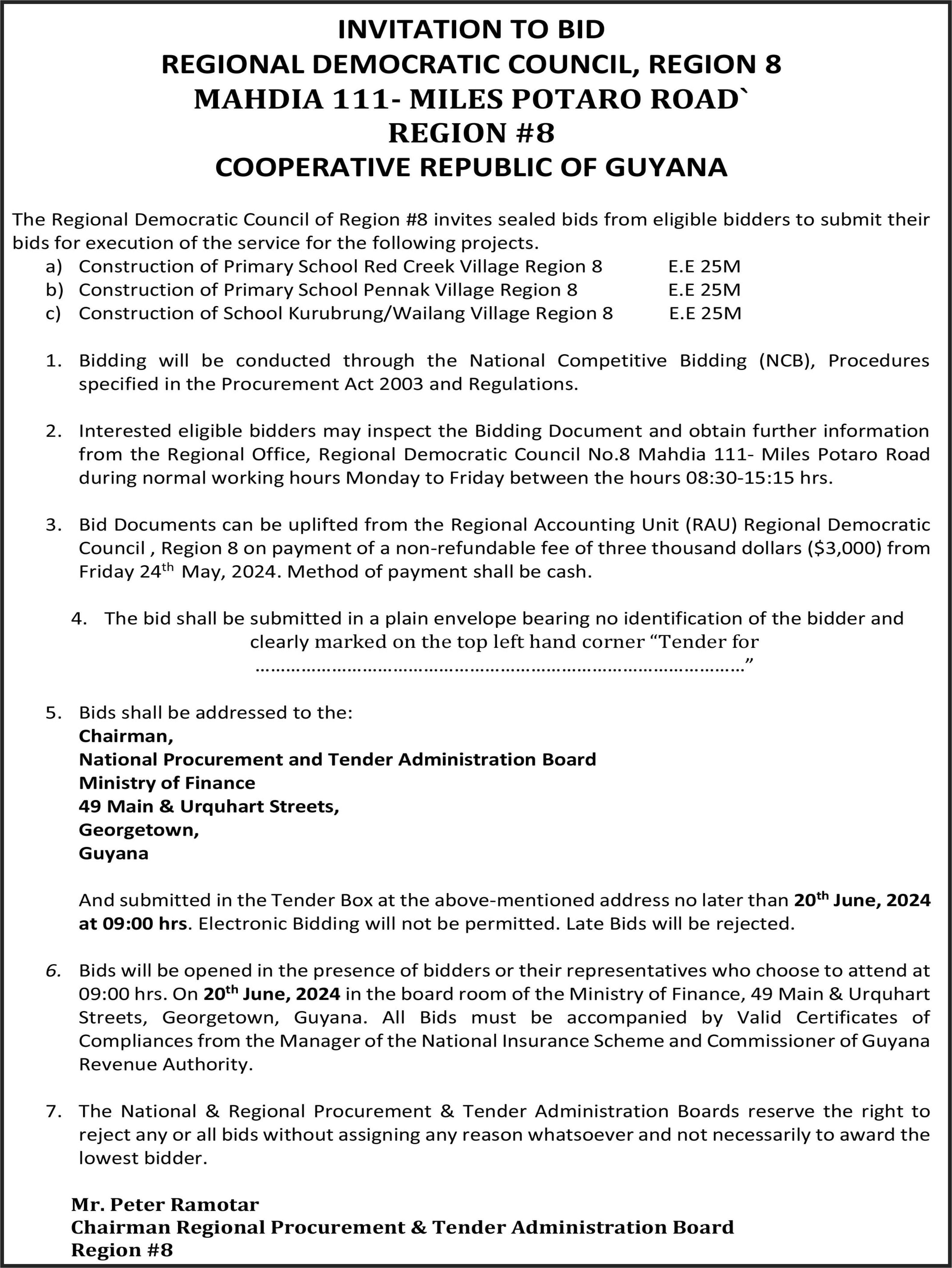




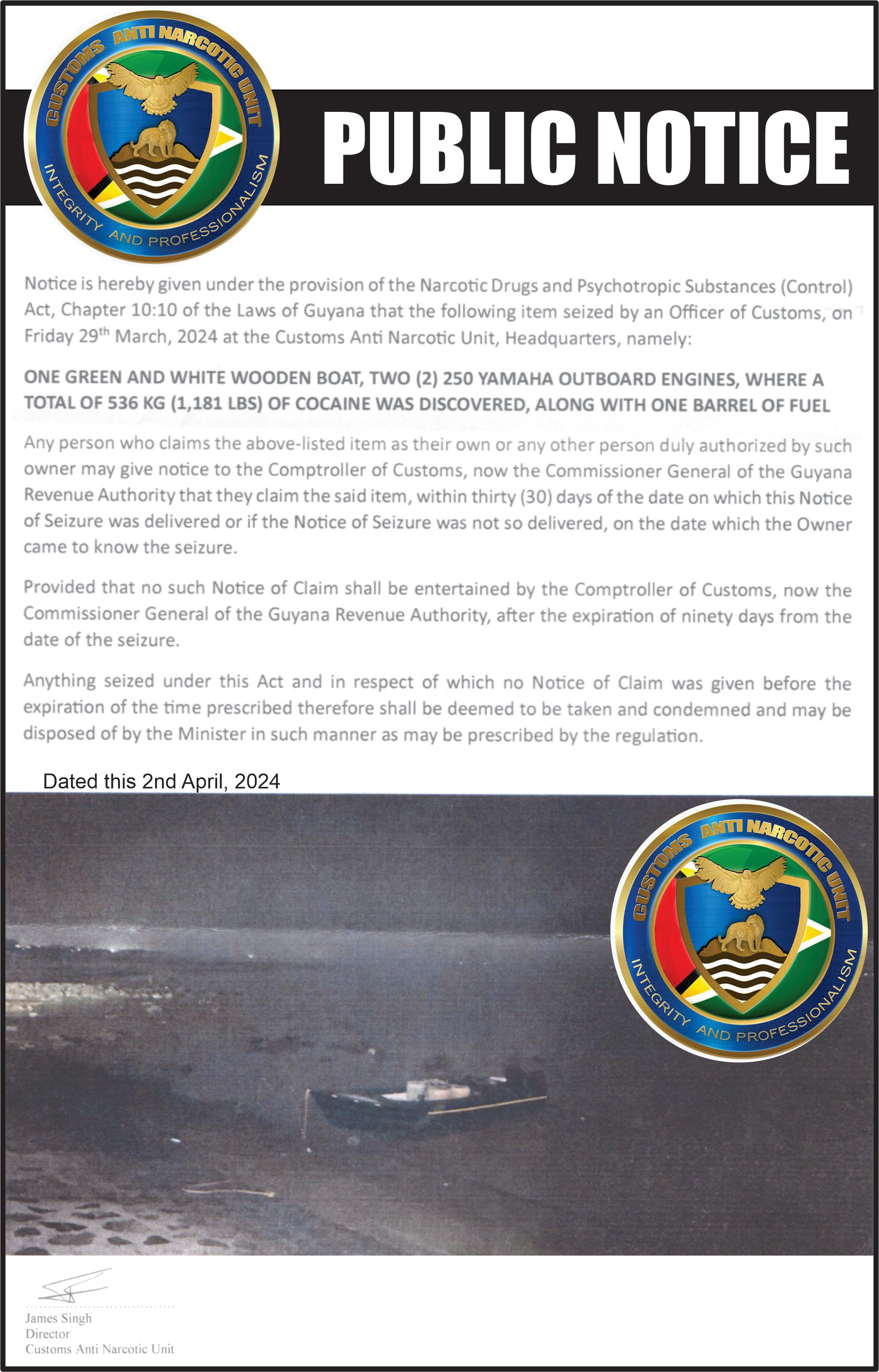
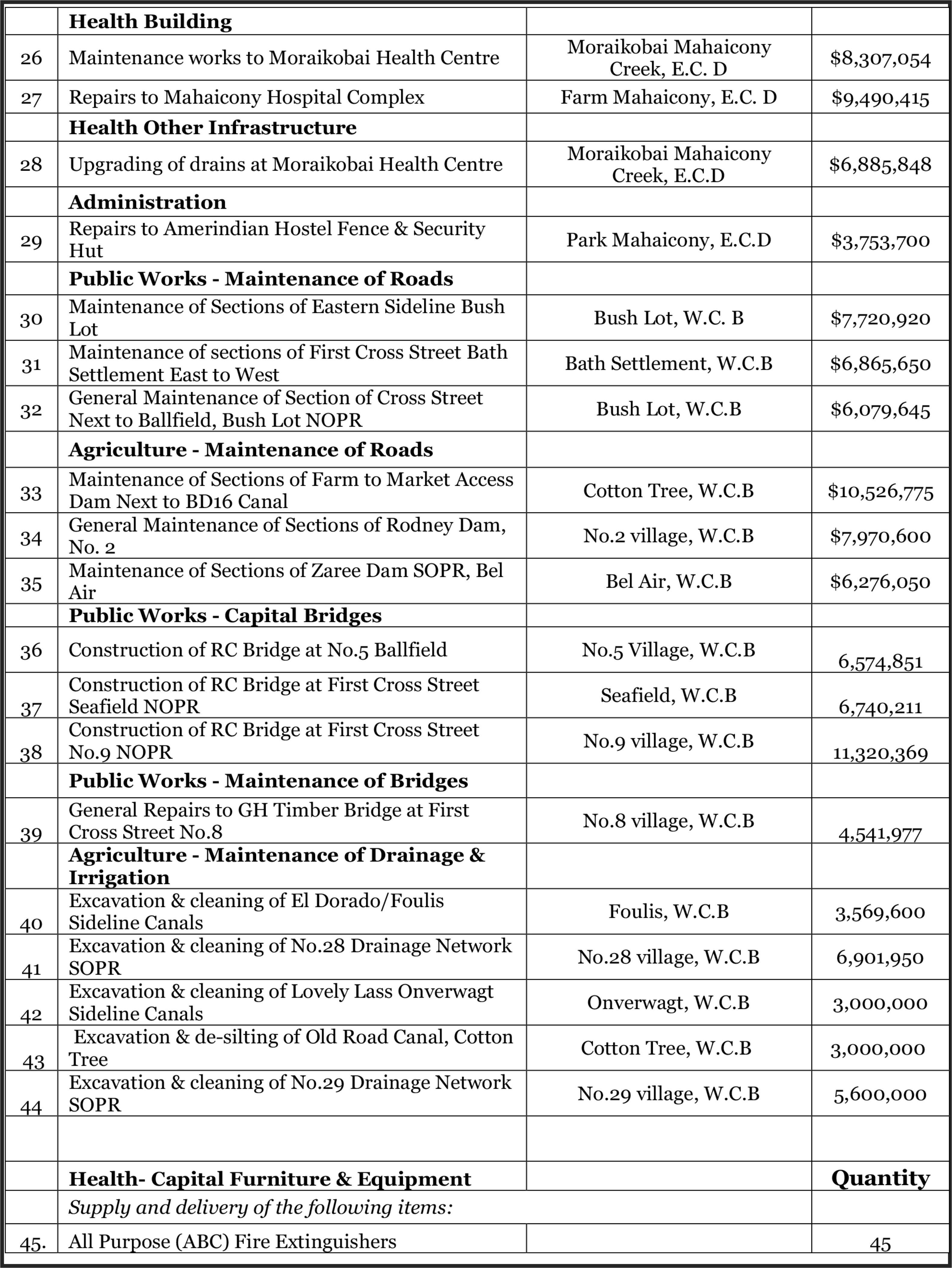



STUDY SUCCESS
Dear Student,
Welcome dear friend.
To show that you have a detailed understanding of a text, you sometimes need to apply your ability to match drawings and pas-
sages in the text. Now, if you are reading a series of passages describing gestures or movements, you would naturally try to visualise them, but then a good reader would go further and have a close scrutiny
of the series since some of the gestures described may differ only by a small detail. Be wise.
Love you.
THE PASSAGE
Comprehension of a poem
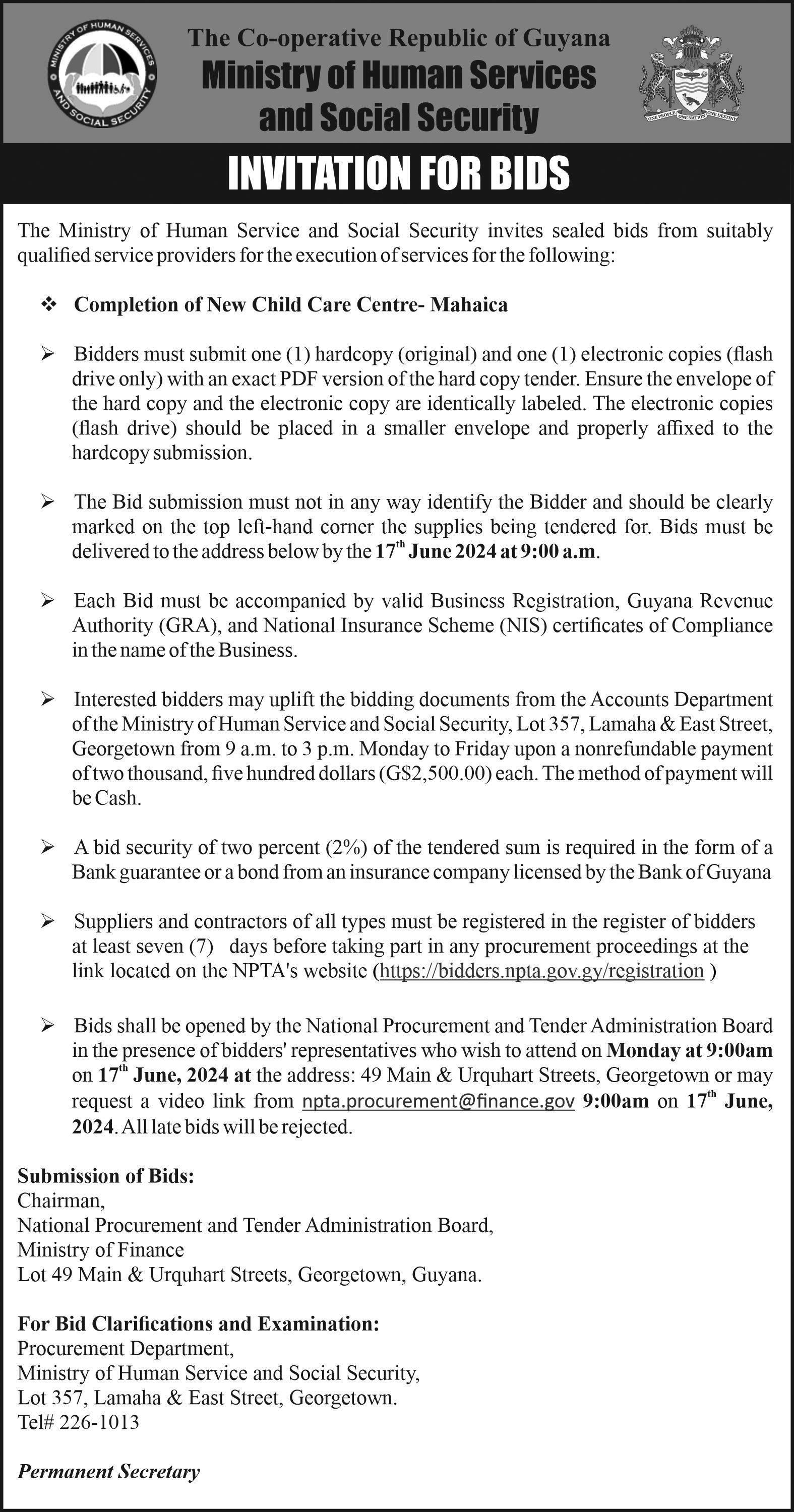
June 2, 2024
Note: To the student of language, poetry offers wonderful opportunities for reading, writing, speaking, and listening practice. It also gives students a chance to expand vocabulary knowledge, to play with language, and to work with different rhythms and rhyme patterns.
Poetry is typically written in verse that uses figurative language, or language that can have different meanings from what is literally said, to give multiple shades of meaning to a word or a phrase.
Read the following poem, “Accounting,” carefully and then answer the questions that follow on the basis of things stated or implied.
Nights too warm for TV
we’re flung outdoors to the porch, citronella candles scenting the space between us, our faces aglow in gold light. She crowds the card table with coin banks, an abacus, five and ten dollar rolling paper, our tidy ledger.
I count, line the coins in neat rows, the abacus clicking out our worth, how much can we save, stack up against the seasons – winter coming, her tightly braided hair turning white, her hands quick, filling the paper casings like homemade sausage.
There’s money in the bank downtown, but this we’ll keep at home buried in jars beneath the house, the crawlspace filling up, packed solid as any foundation.
(Natasha Trethewey)
1. The activity described in the poem is (A) viewing television (B) counting money (C) playing cards (D) making sausages
2. “She” in the poem is MOST likely (A) economical (B) mercenary (C) miserly (D) spendthrift
3. “She crowds the card table ” (A) she sits close to the card table
(B) many people sit around the card table (C) the card table is
The bigger they come, the harder they fall. ROBERT FITZSIMMONS (1862- 1917) Said before his fight with Jefferies in San Francisco, June 9,1899
packed (D) there are many card tables
4. The comparison between the paper casings and the homemade sausages is a reference to (A) bulkiness (B) colour (C) shape (D) quantity
5. The “crawlspace” MOST likely refers to (A) very slow movement (B) a large container (C) the foundation of the house (D) a low, cramped area
6. The money is being saved to (A) place in the bank (B) package in paper casings
(C) safeguard against need in winter (D) bury
7. The phrase “solid as any foundation” suggests (A) what a huge fortune they buried
(B) how secure it made the owners feel
(C) how fragile the jars were (D) that the foundations needed reinforcement
THE SENTENCE
Sentence nearest in meaning to a given sentence
Instructions: Choose the sentence that is NEAREST in meaning to the original sentence.
1. The people in the shopping plaza were as varied and curious as the wares they offered for sale.
(A) The people in the market were curious about the variety of goods offered for sale.
(B) The people in the market selling the various and unusual wares were of
many races.
(C) A large variety of curios were offered for sale in the shopping plaza to many different people.
(D) The wares for sale in the shopping plaza were as different and as strange as the people selling them.
2. According to the witness, he did not see the accused man commit the crime.
(A) The witness testified that he did not see the accused man commit the crime.
(B) The witness testified that the accused man was not seen by him near the place where the crime was committed.
(C) The witness testified that the accused man was far from the location where the crime was committed.
(D) The witness testified to seeing no evidence that the accused man had committed the crime.
3. So engrossed was he in his task that he did not hear his sister enter the room.
(A) His task was so difficult that he did not observe his sister’s entry.
(B) He did not hear his sister enter the room because of the job he was doing.
(C) His sister’s entry did not attract his attention because he was enjoying what he was doing.
(D) He was so preoccupied with what he was doing that he was unaware of his sister’s entry.